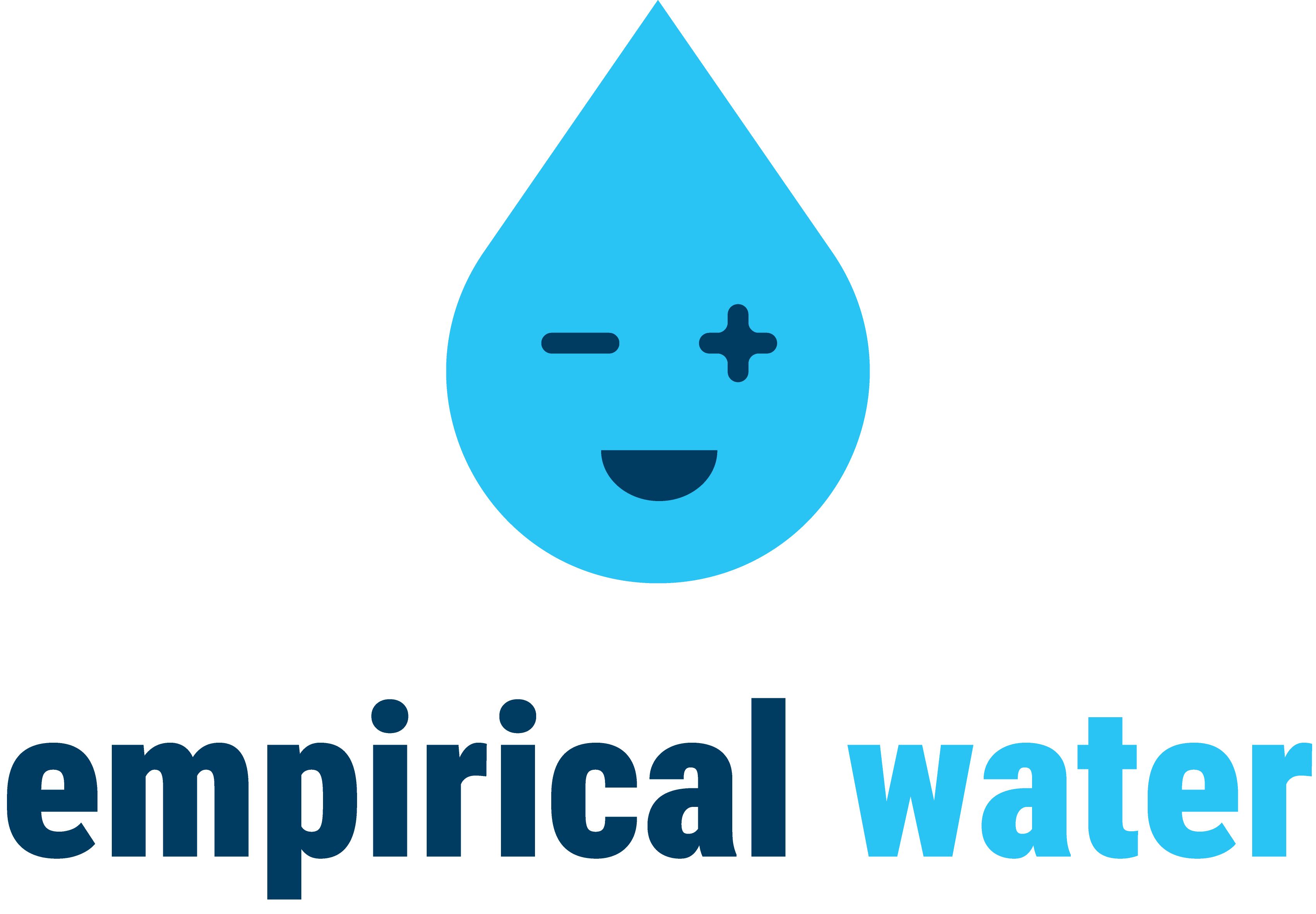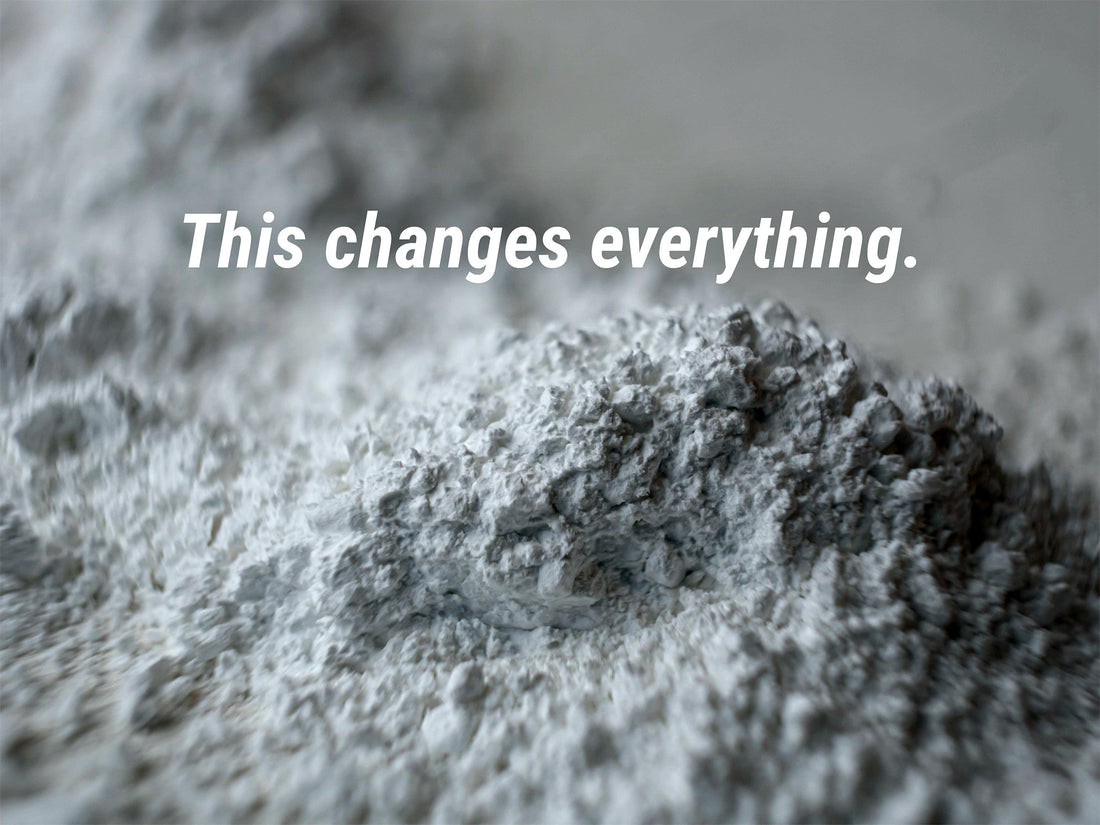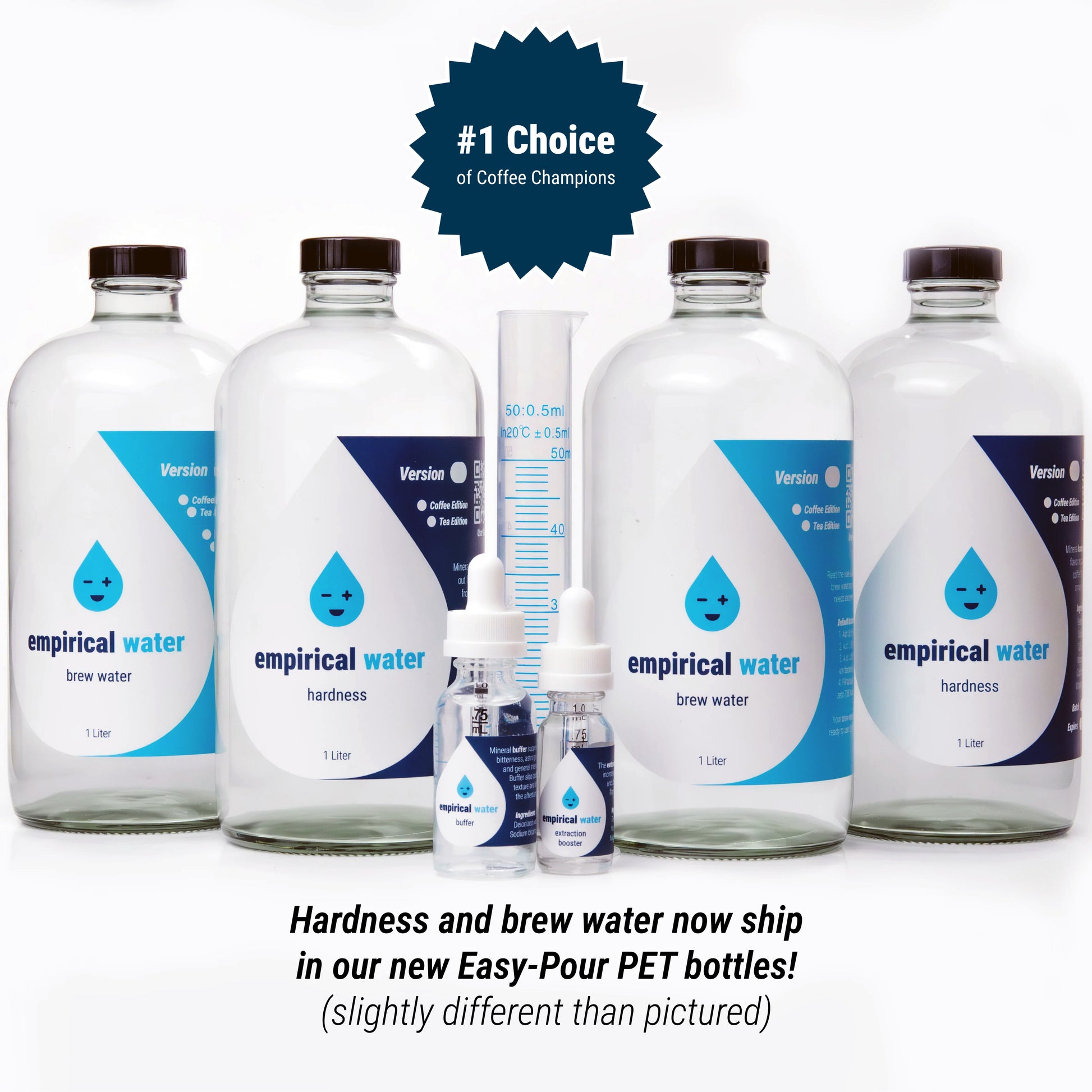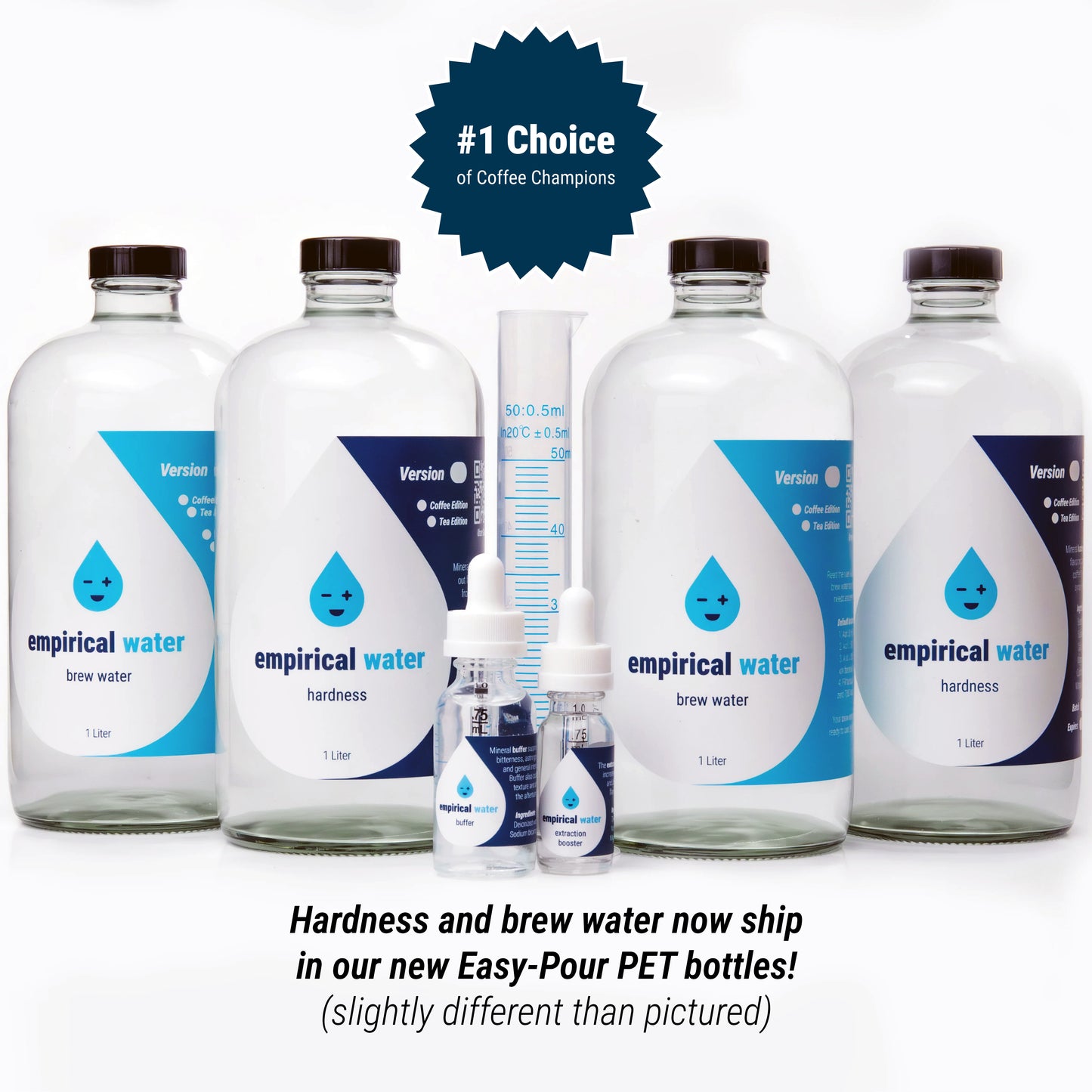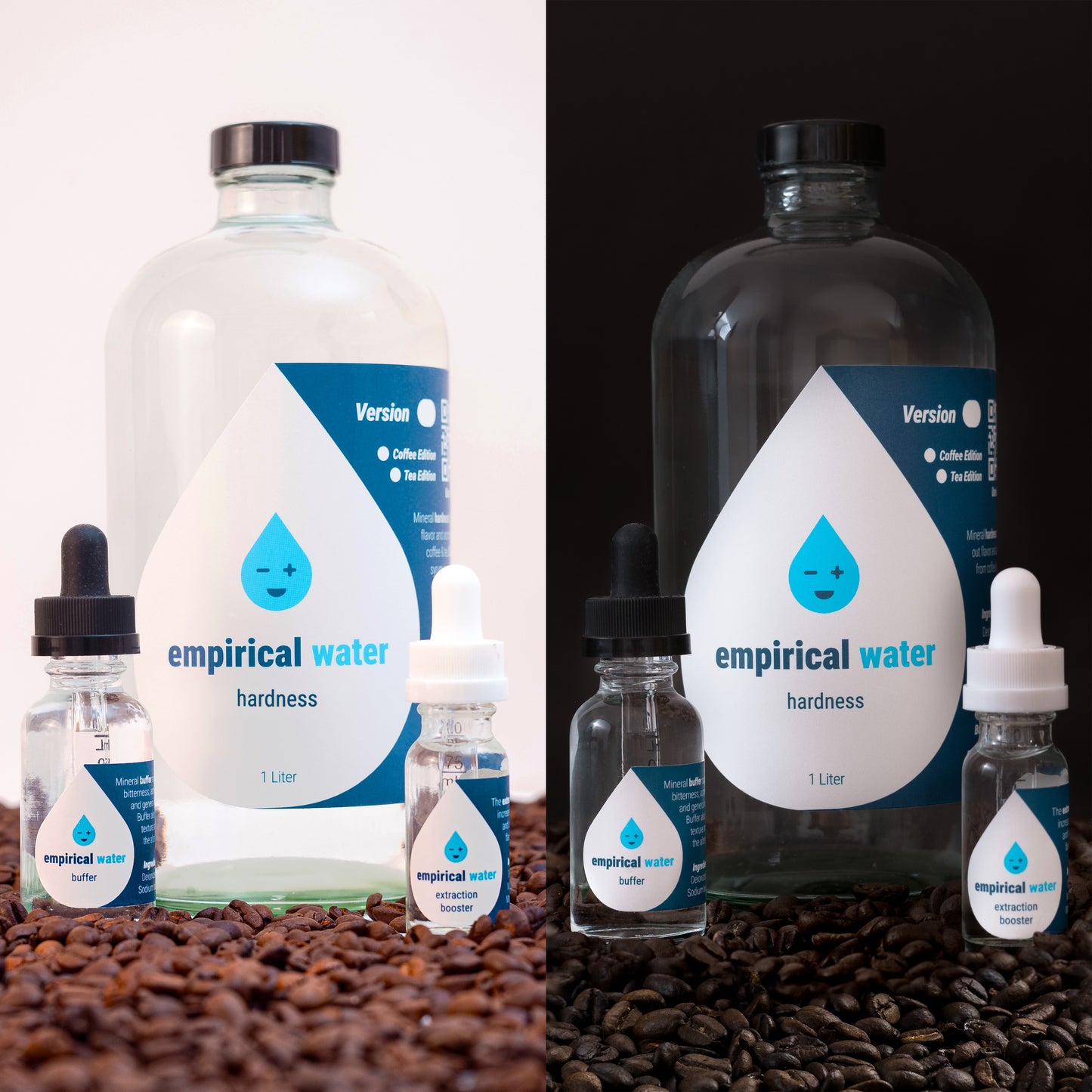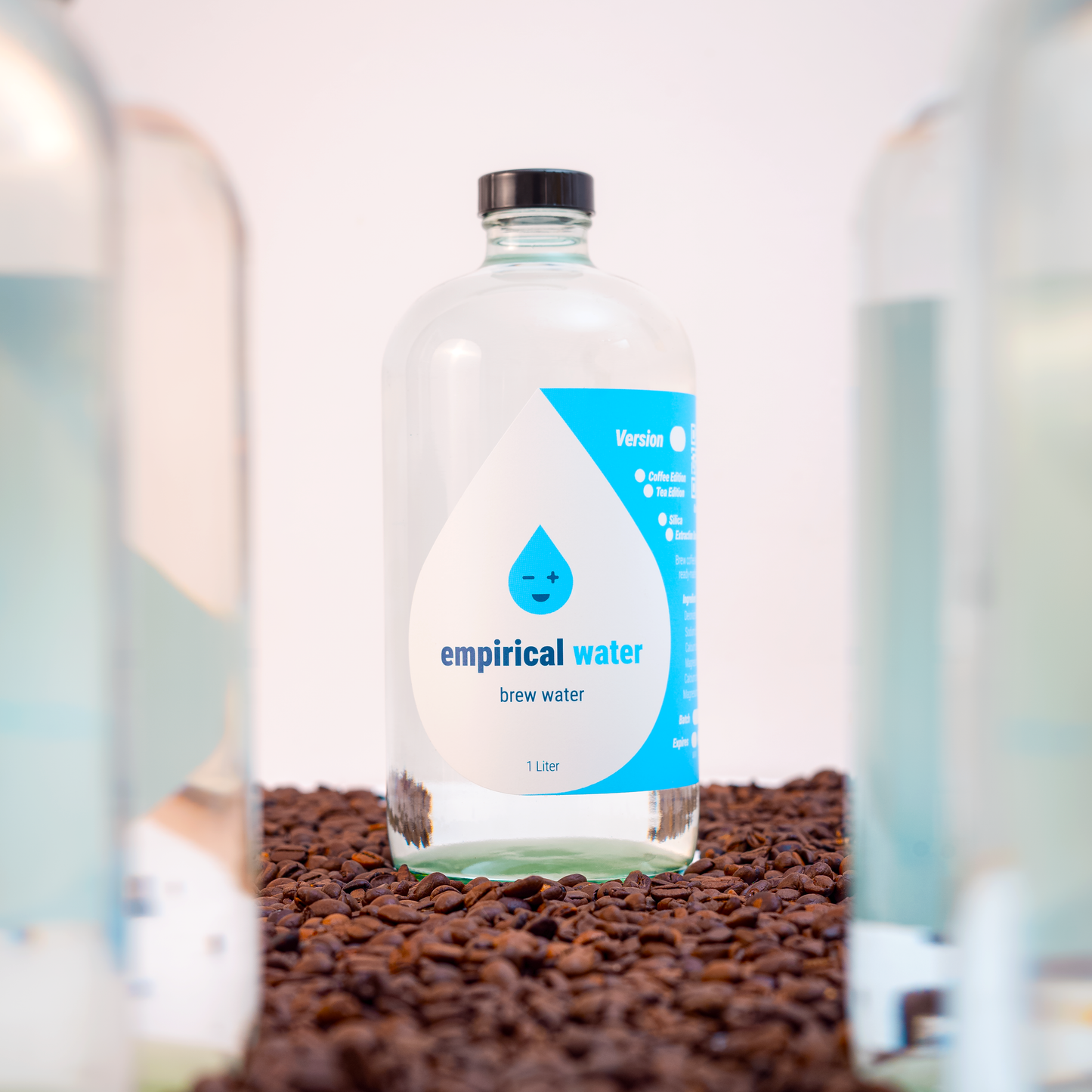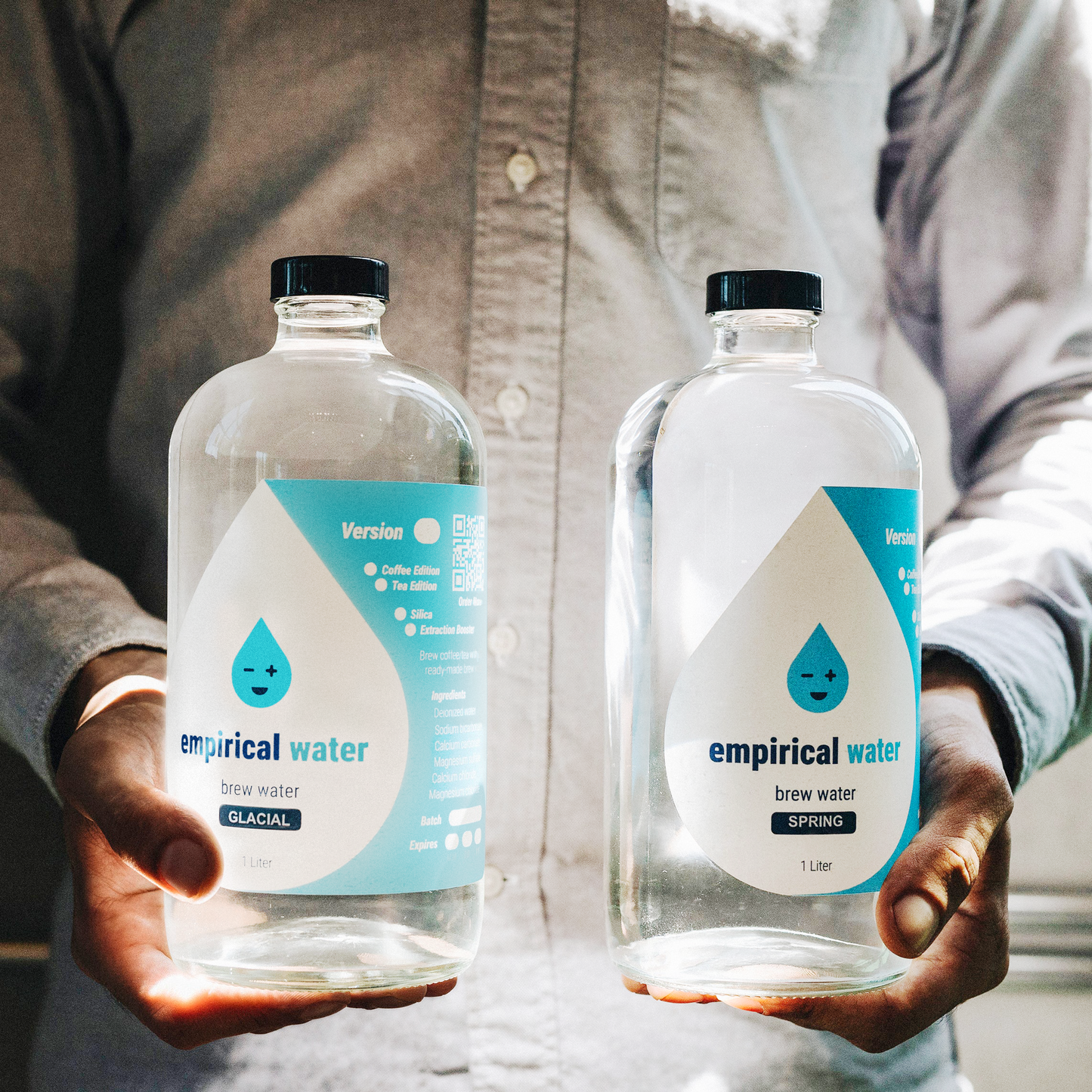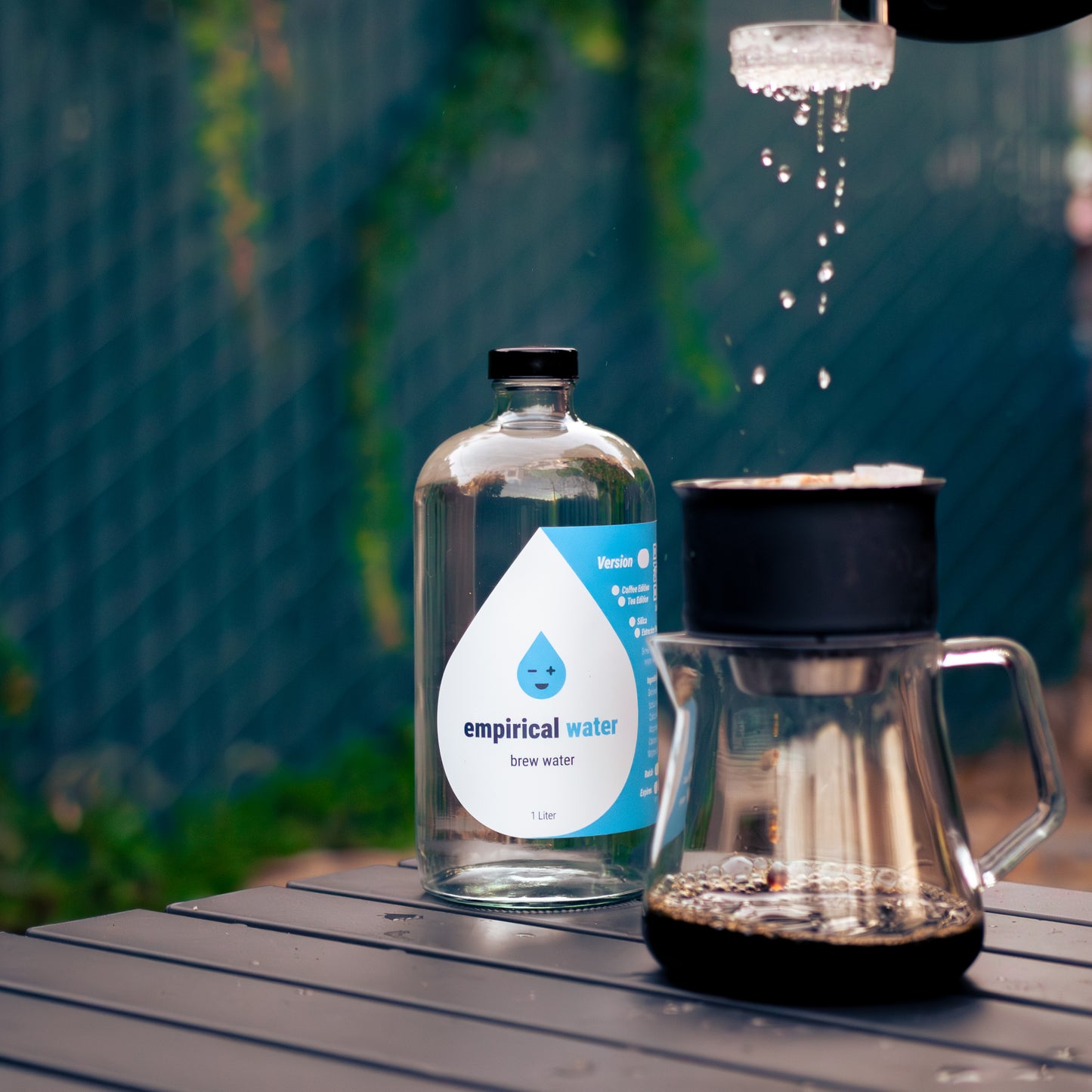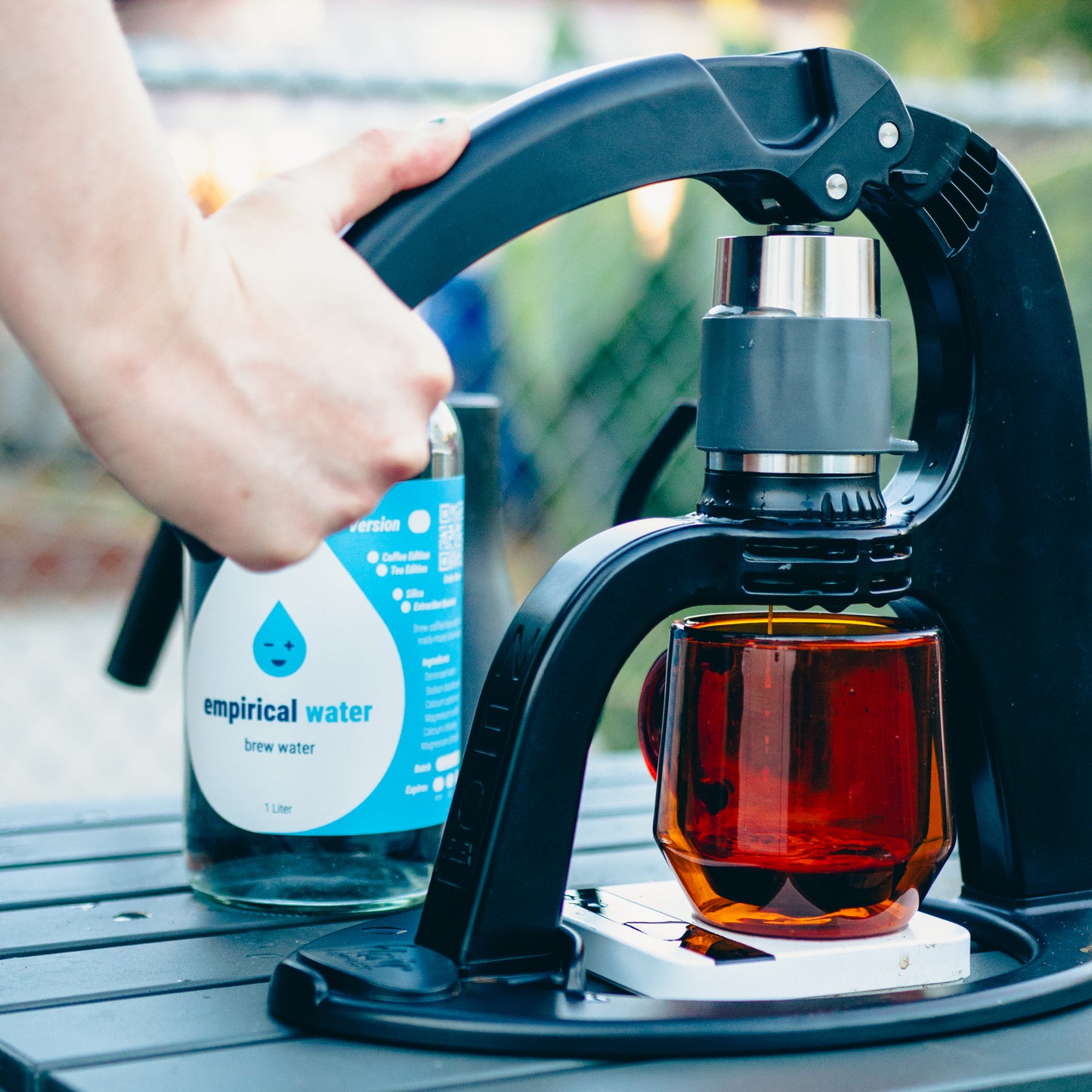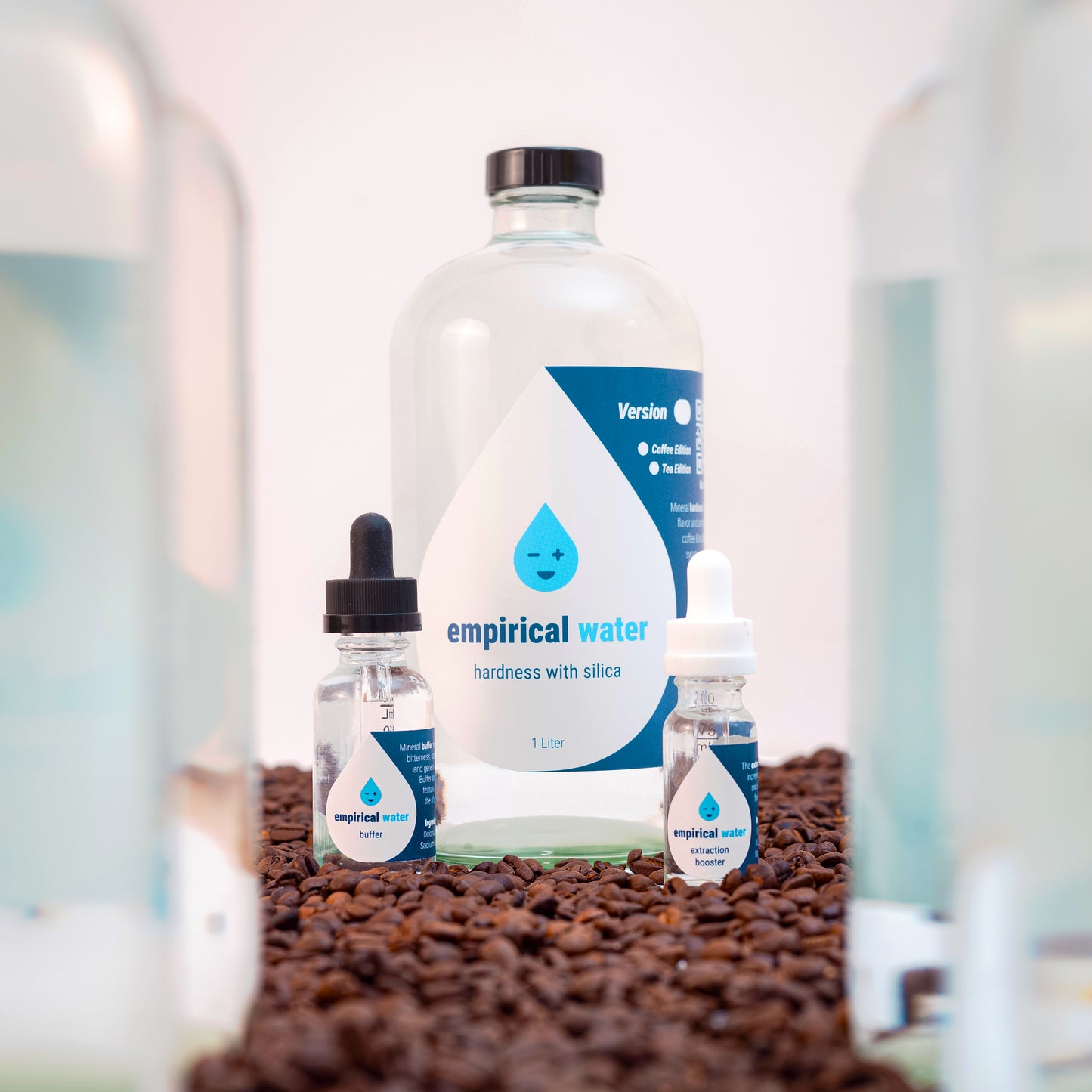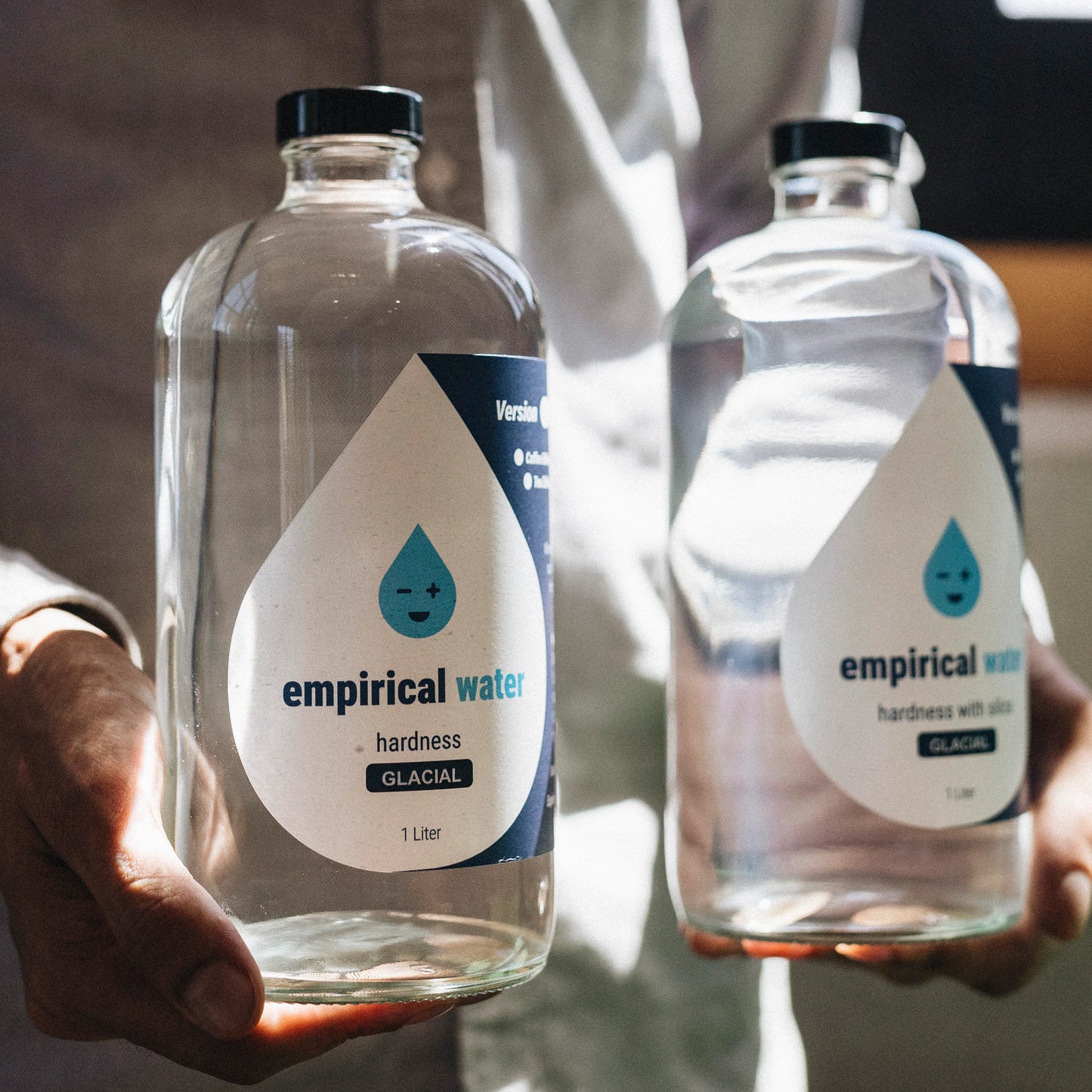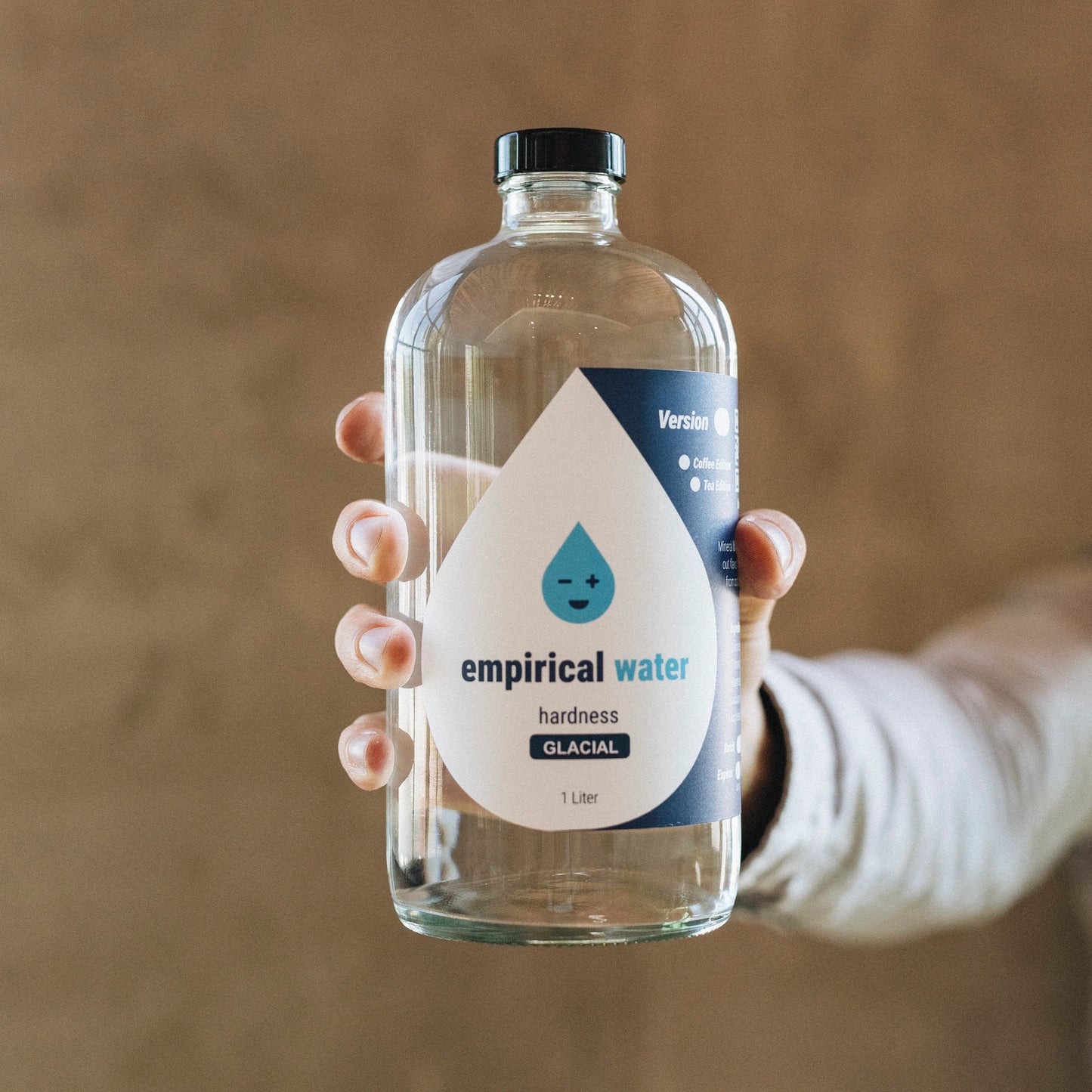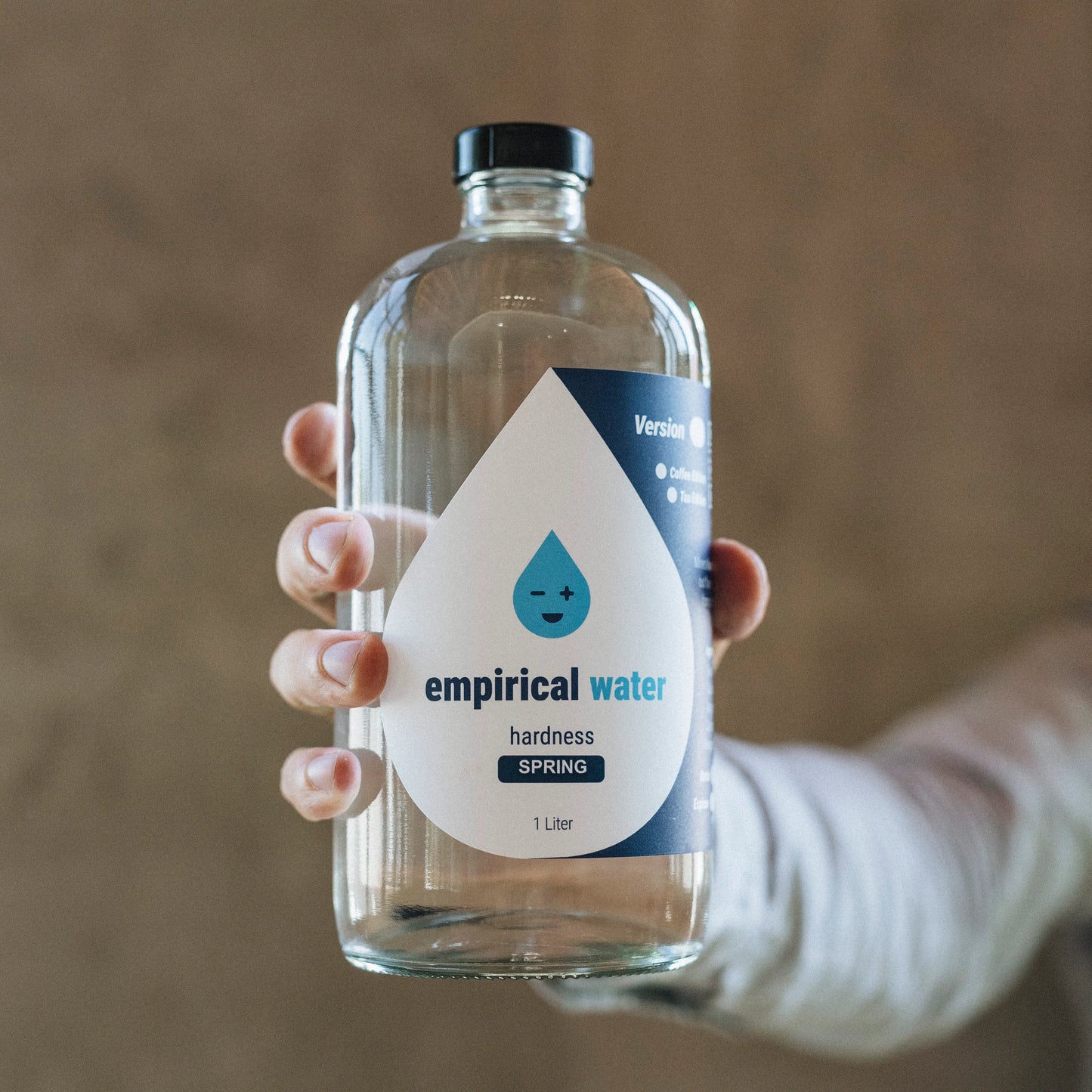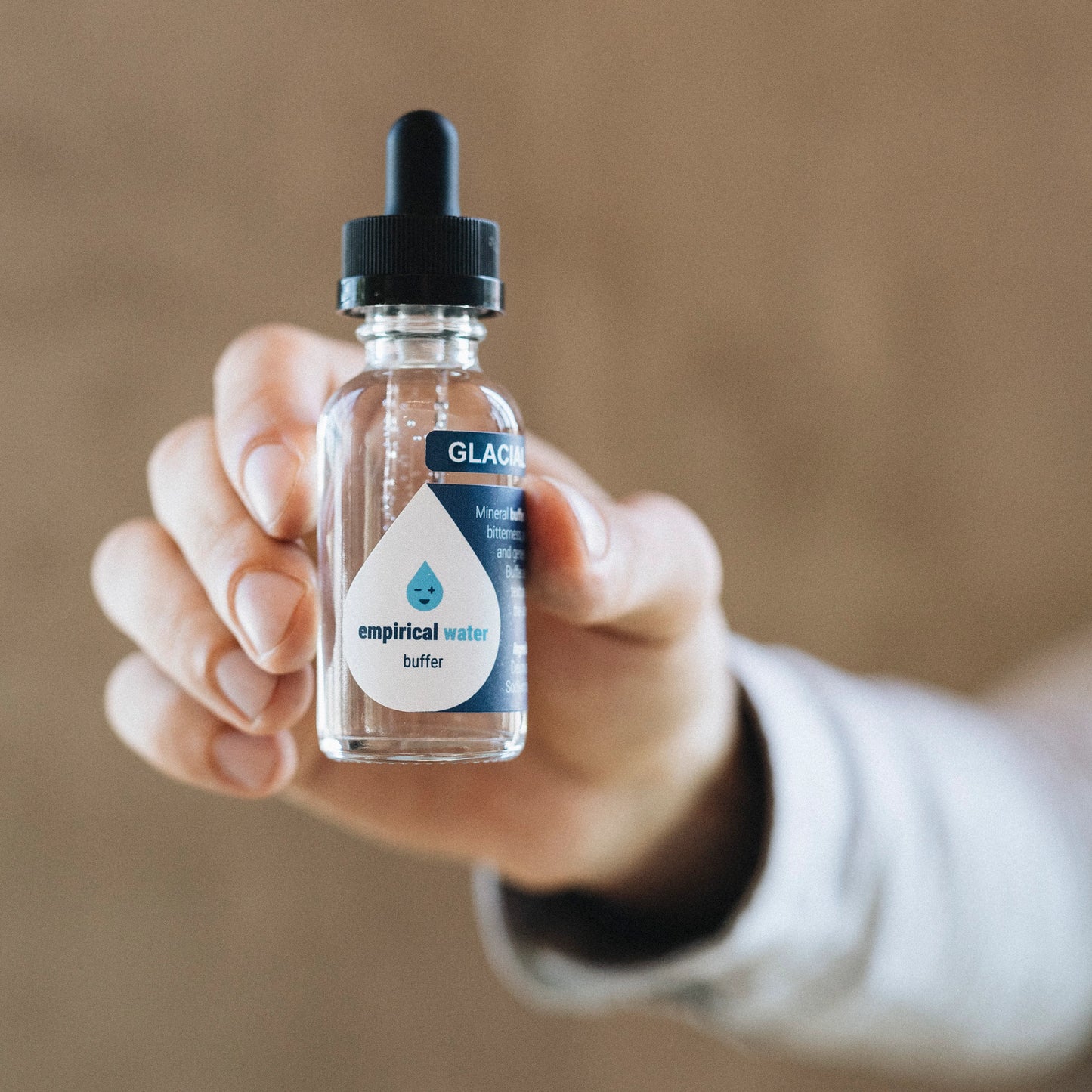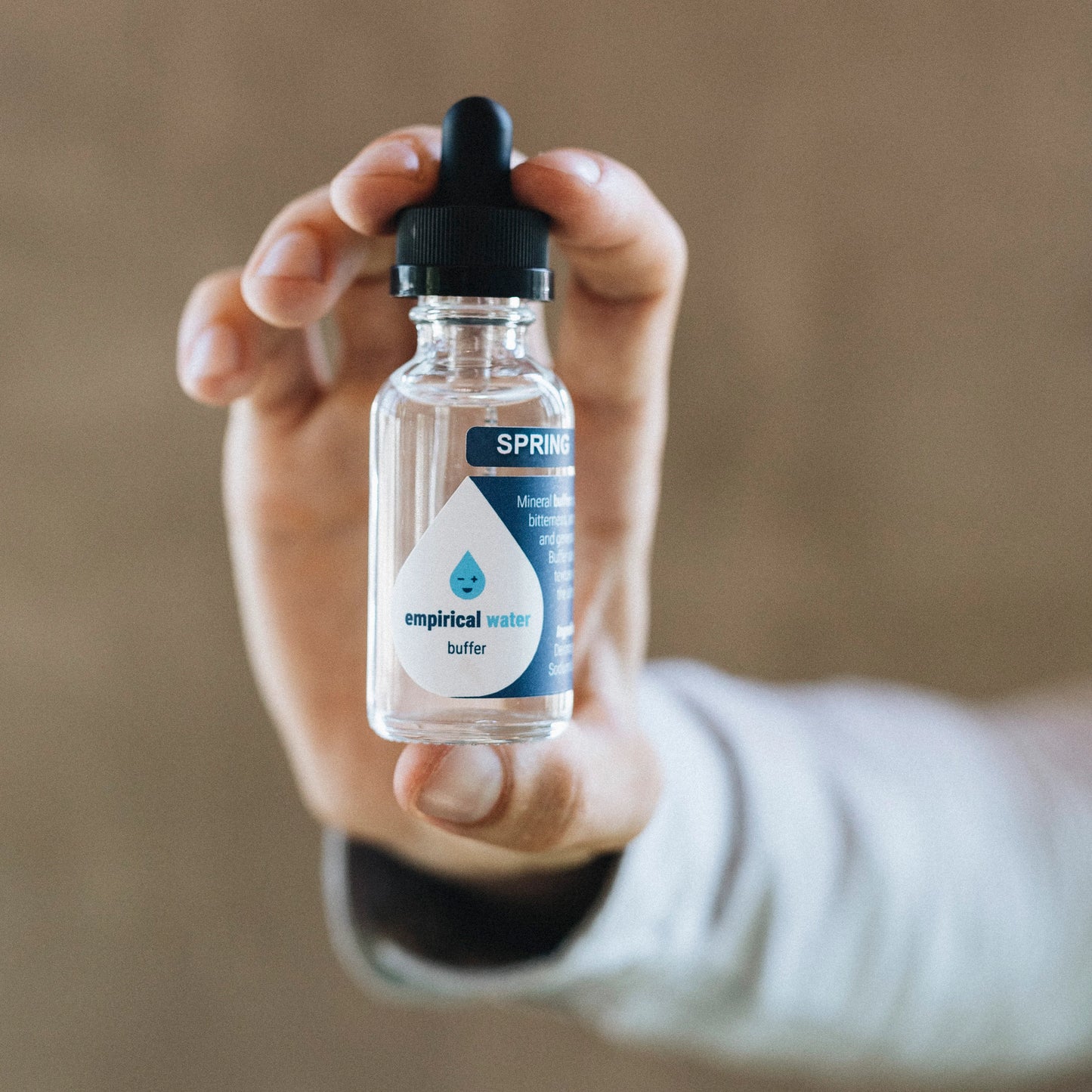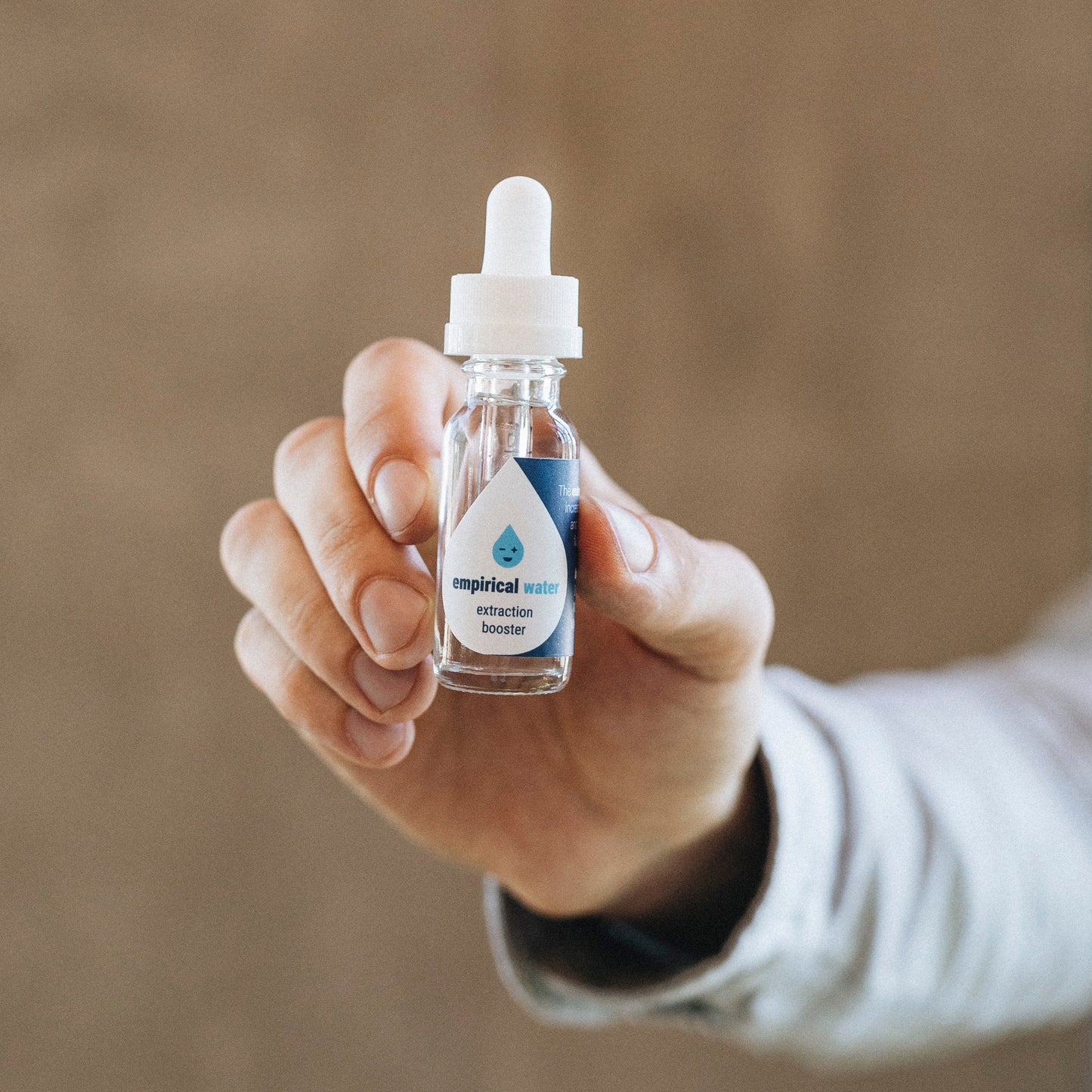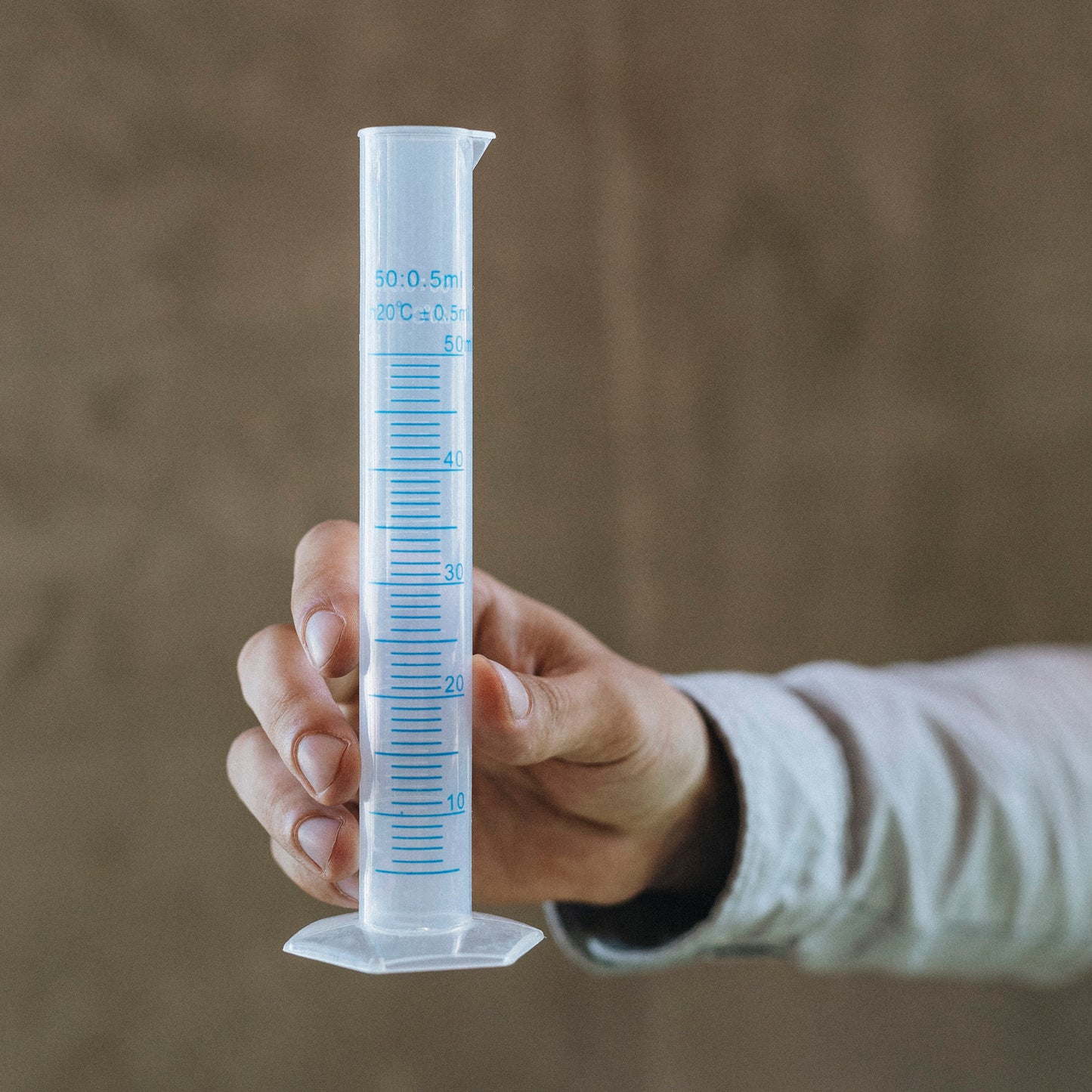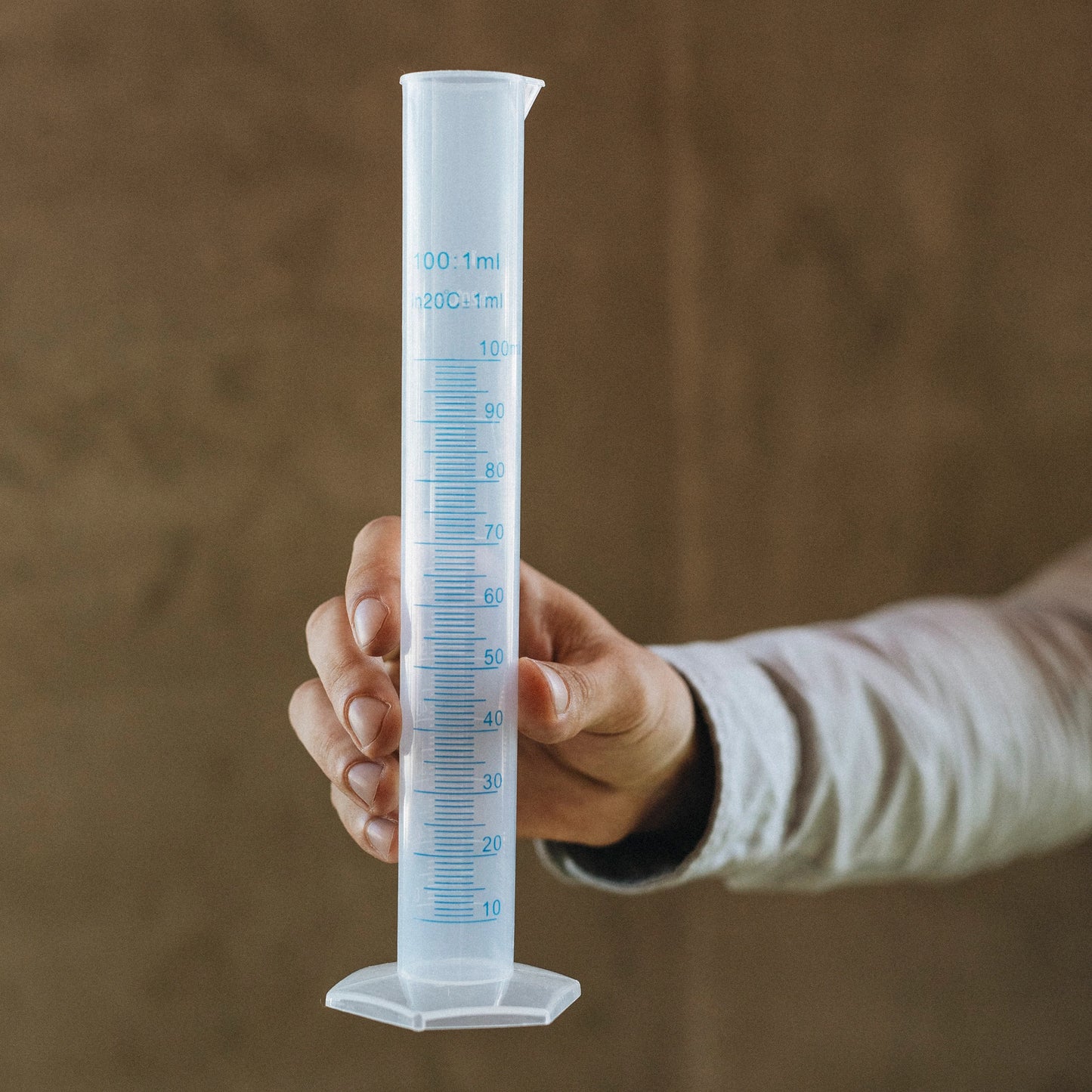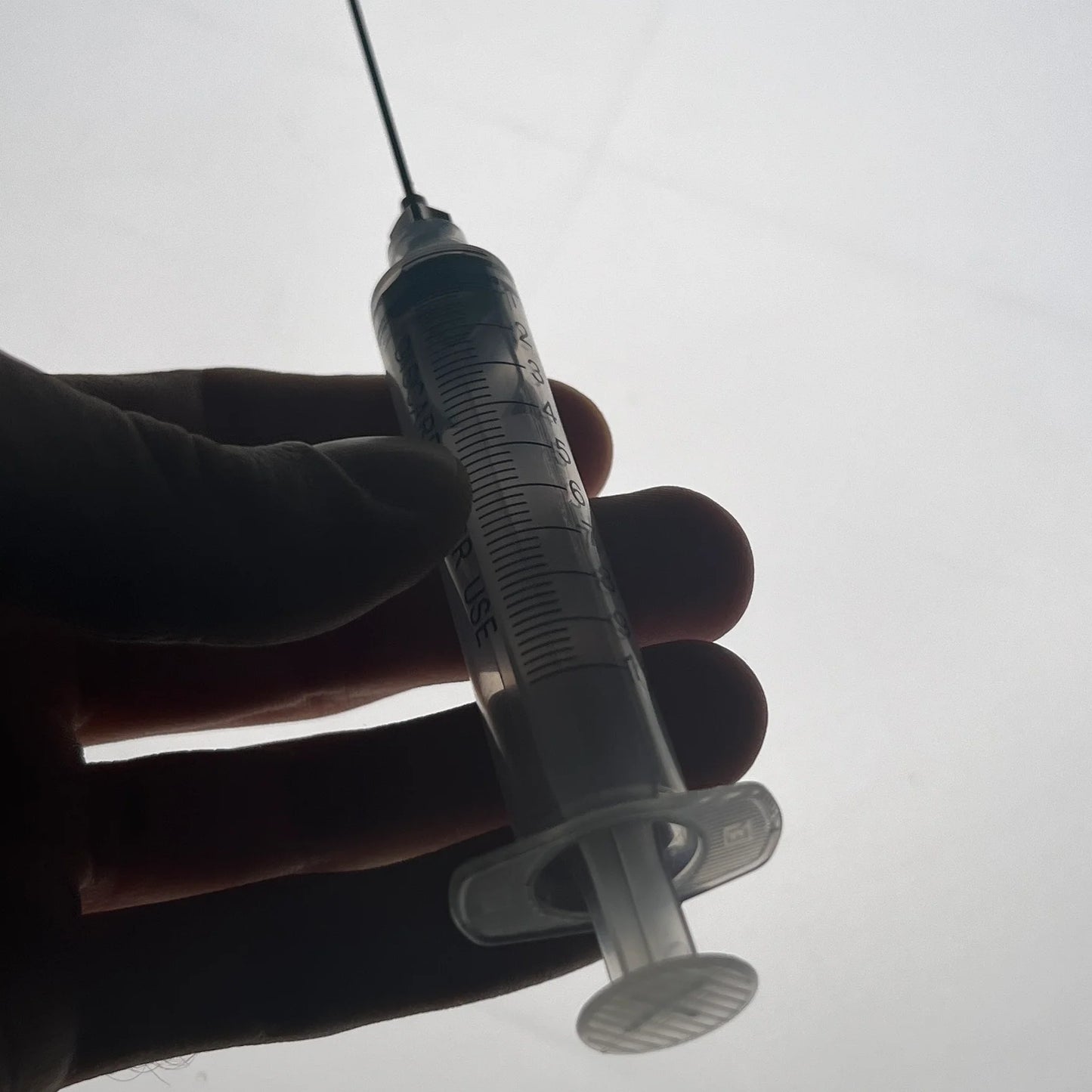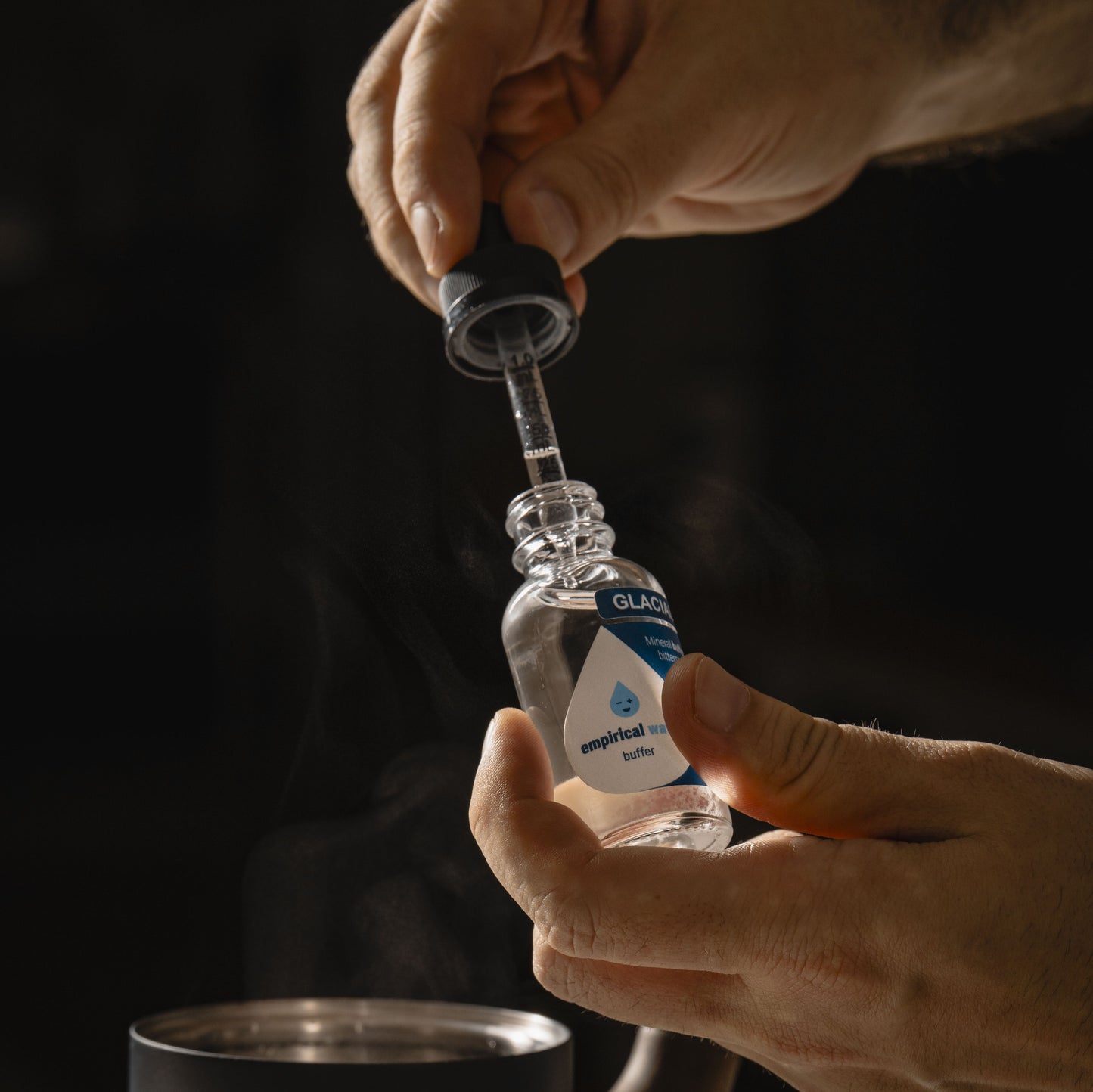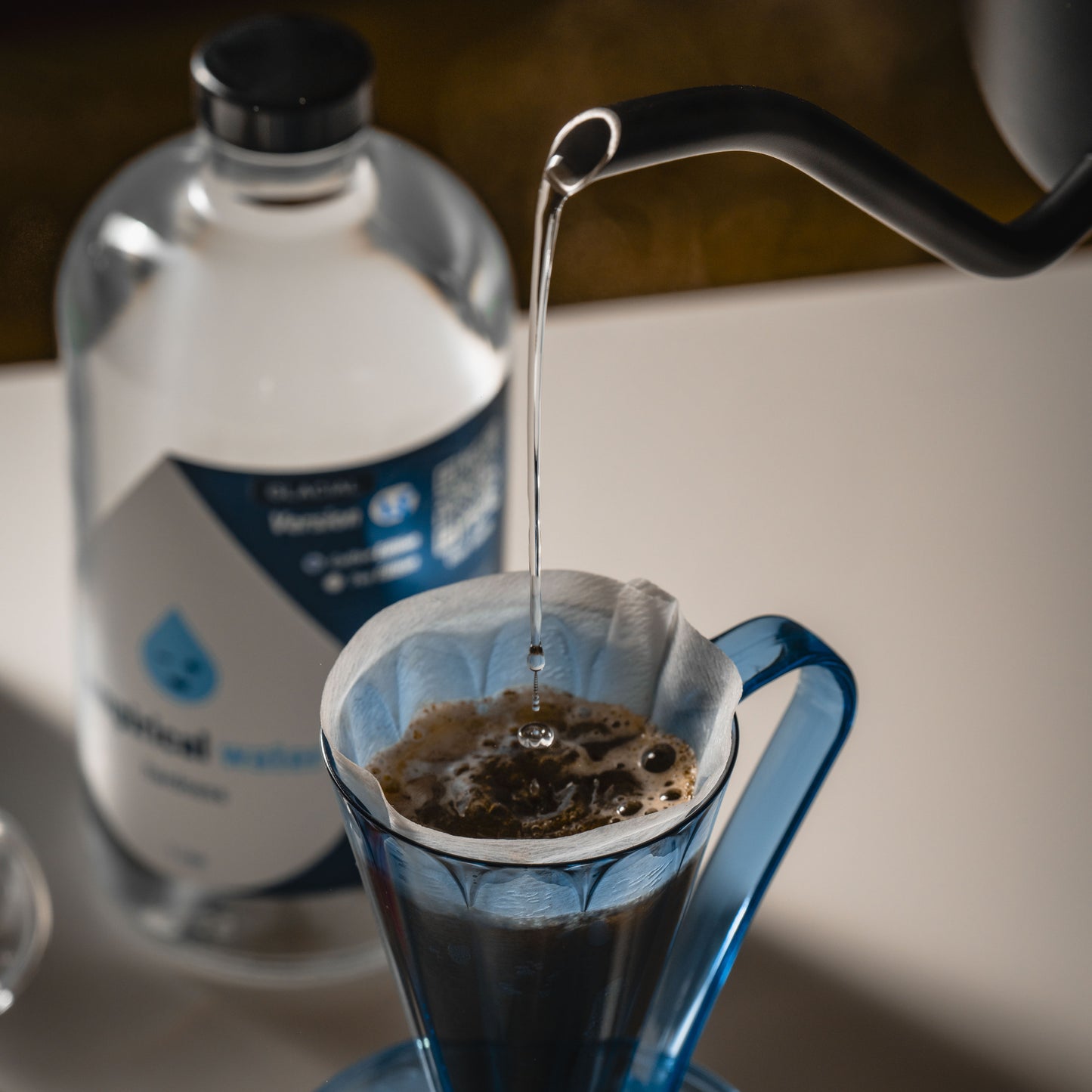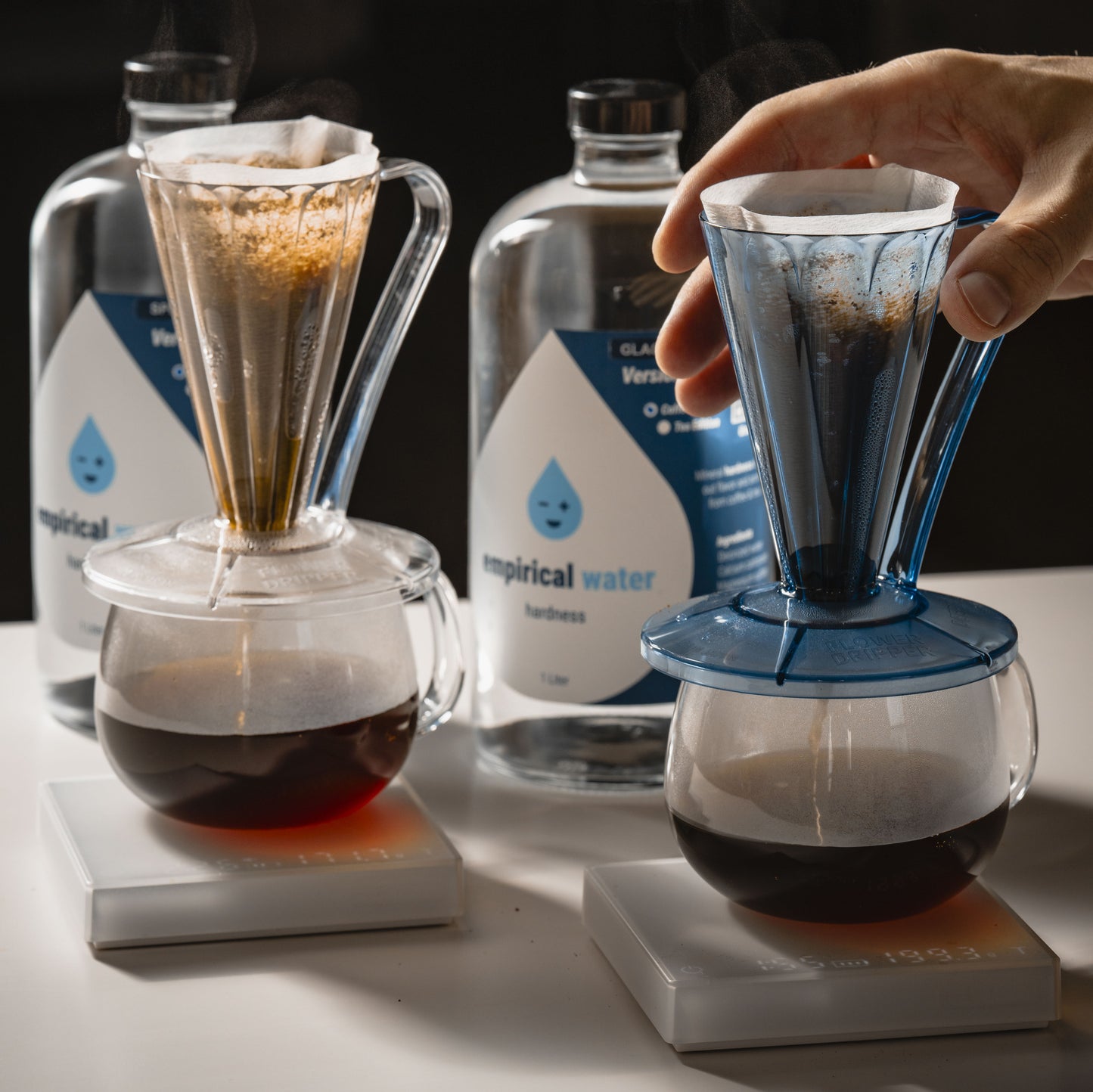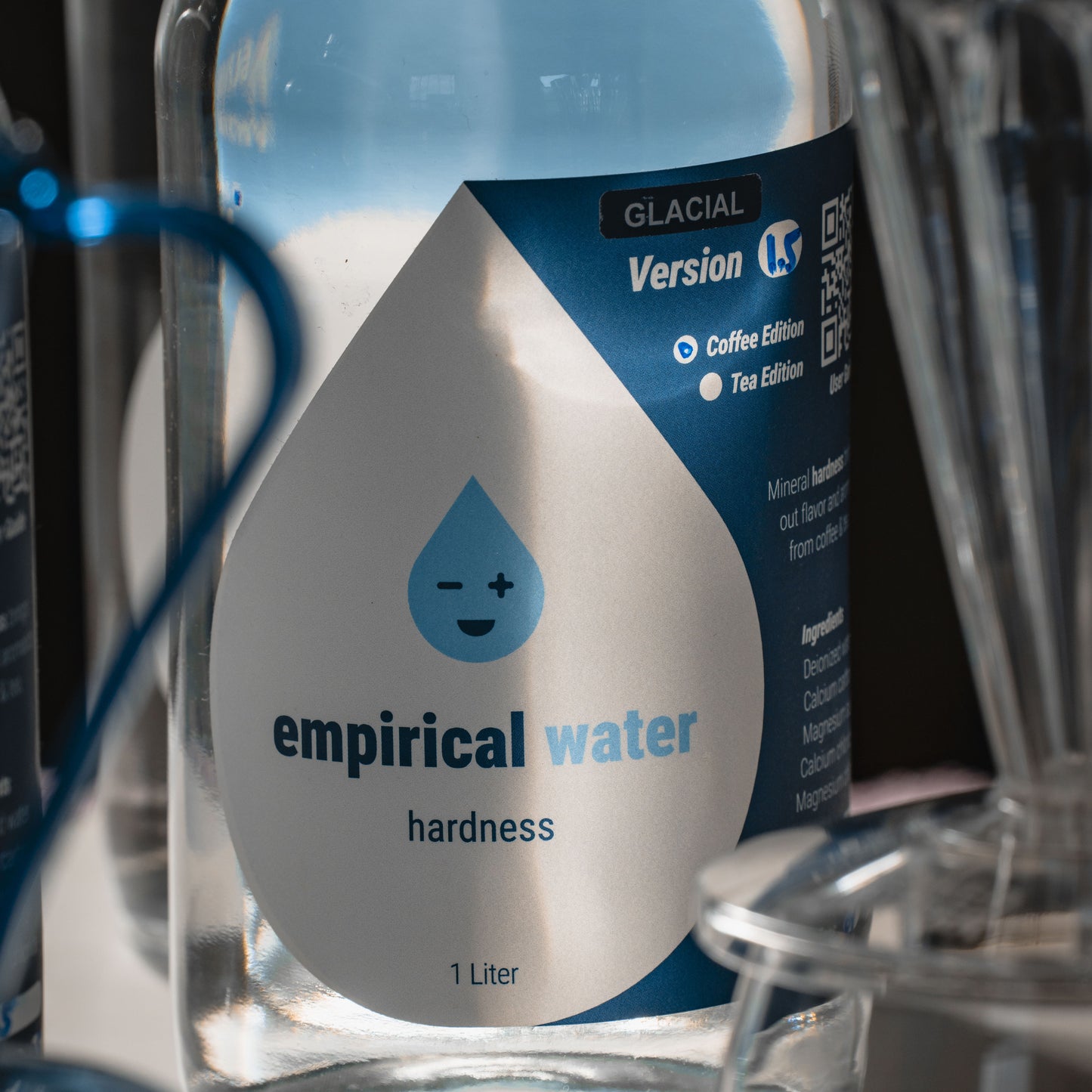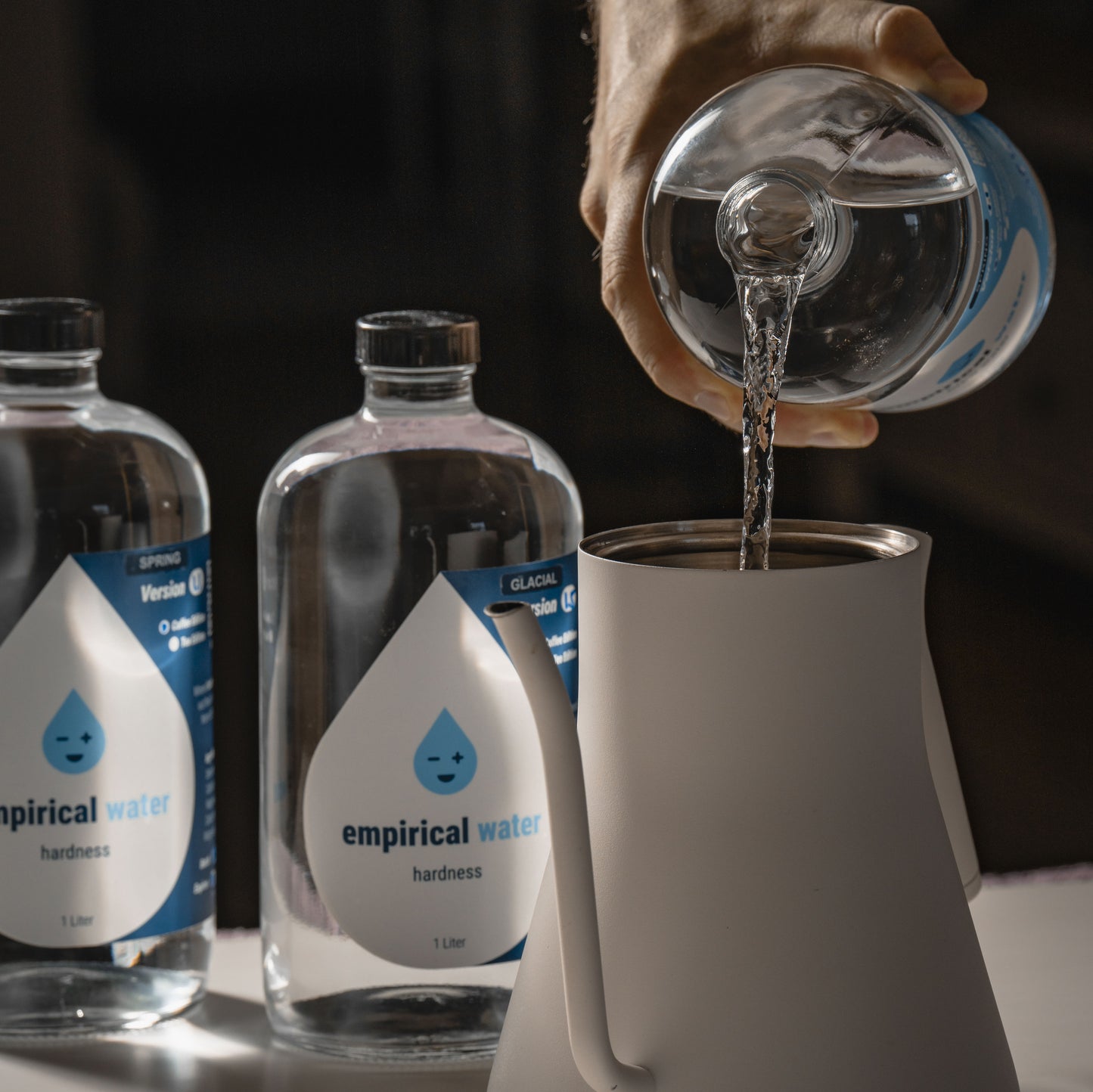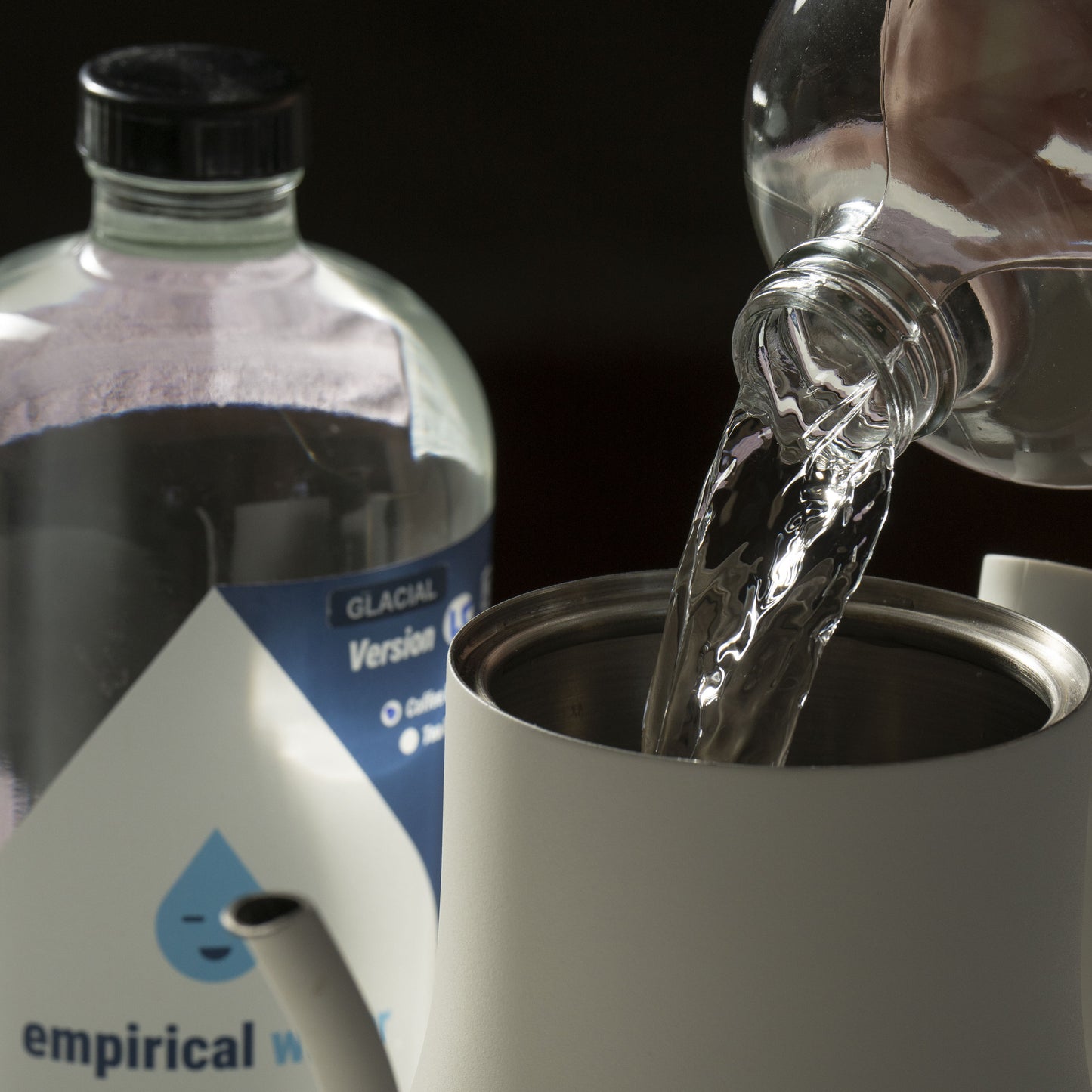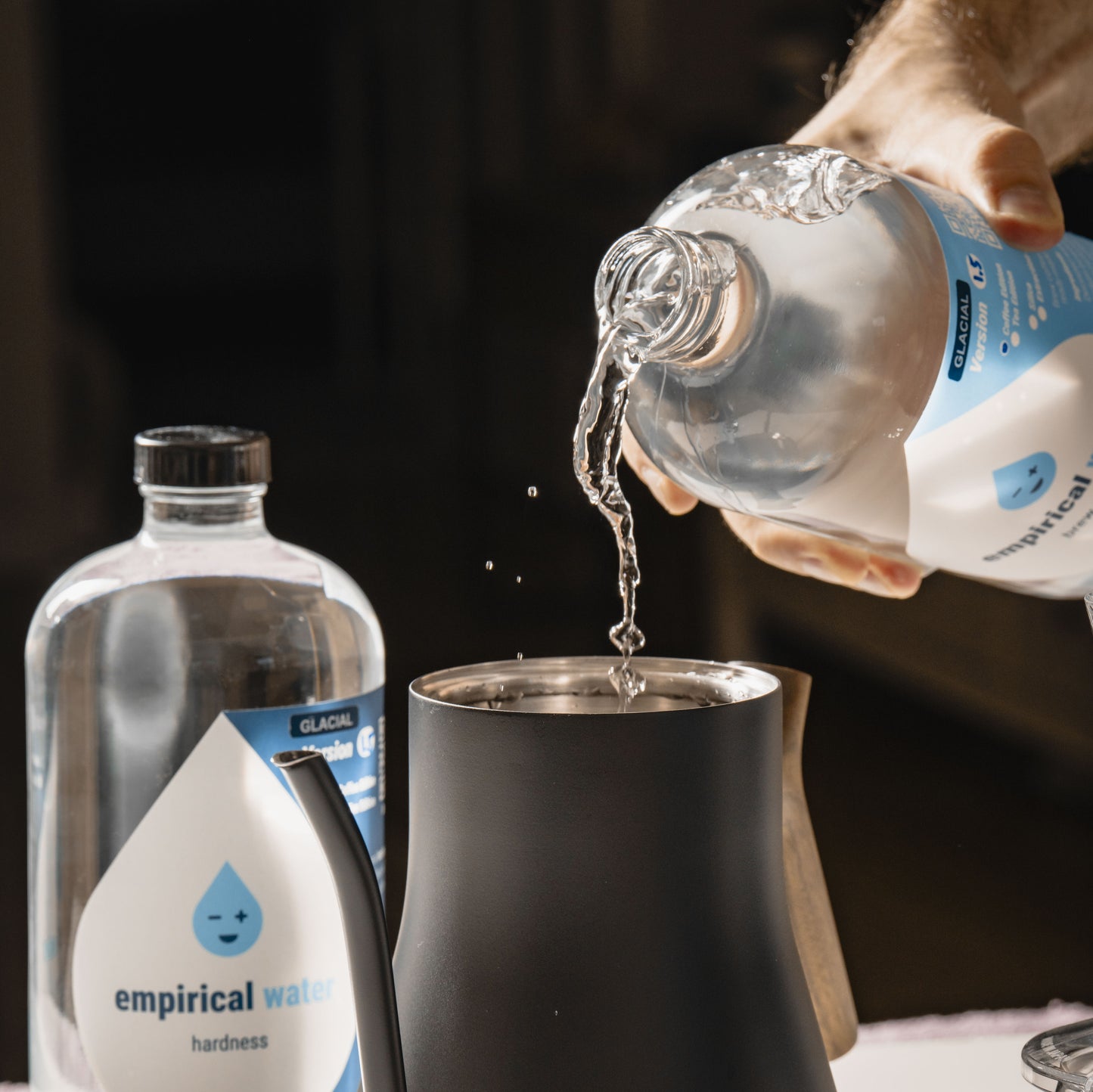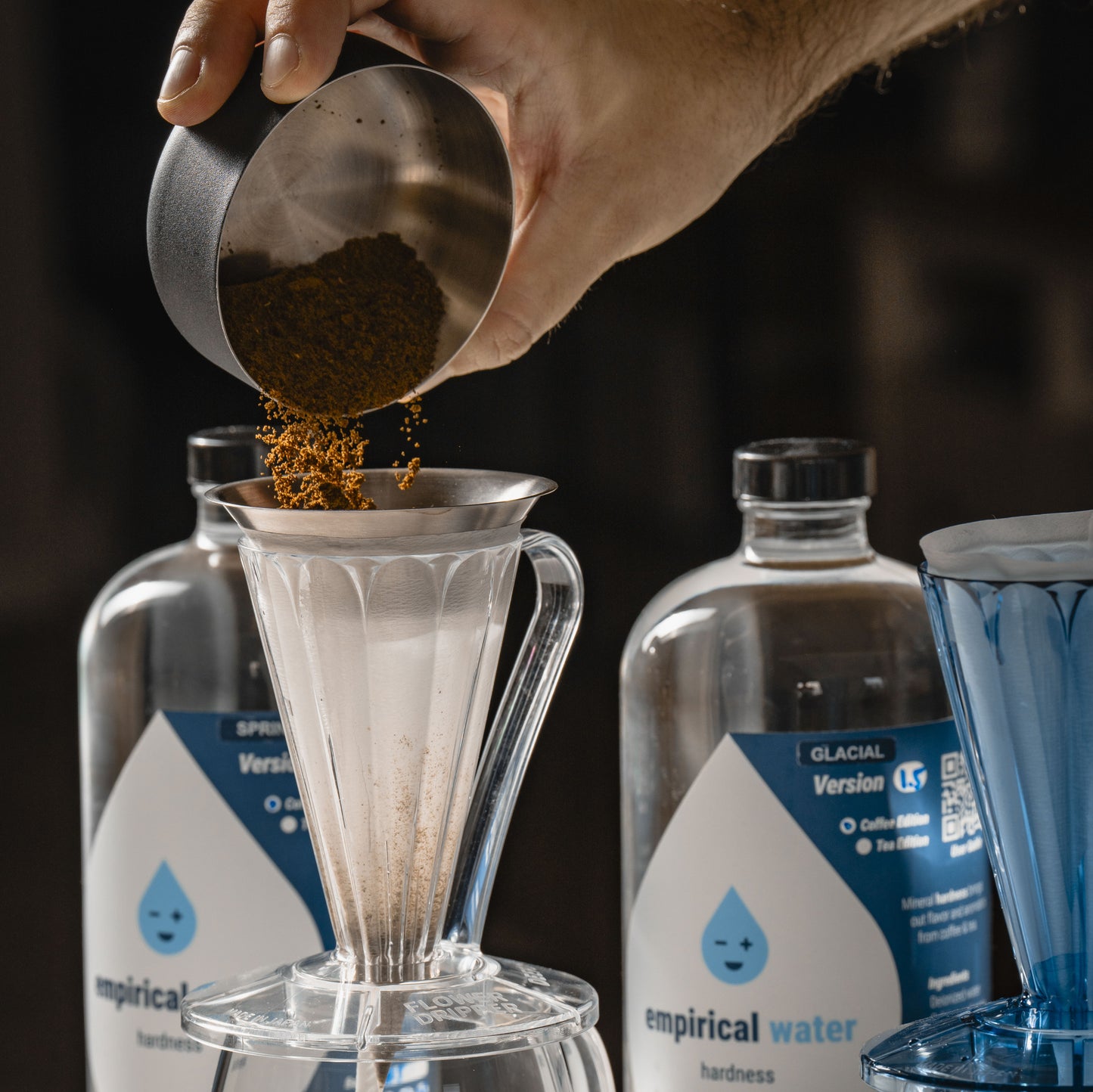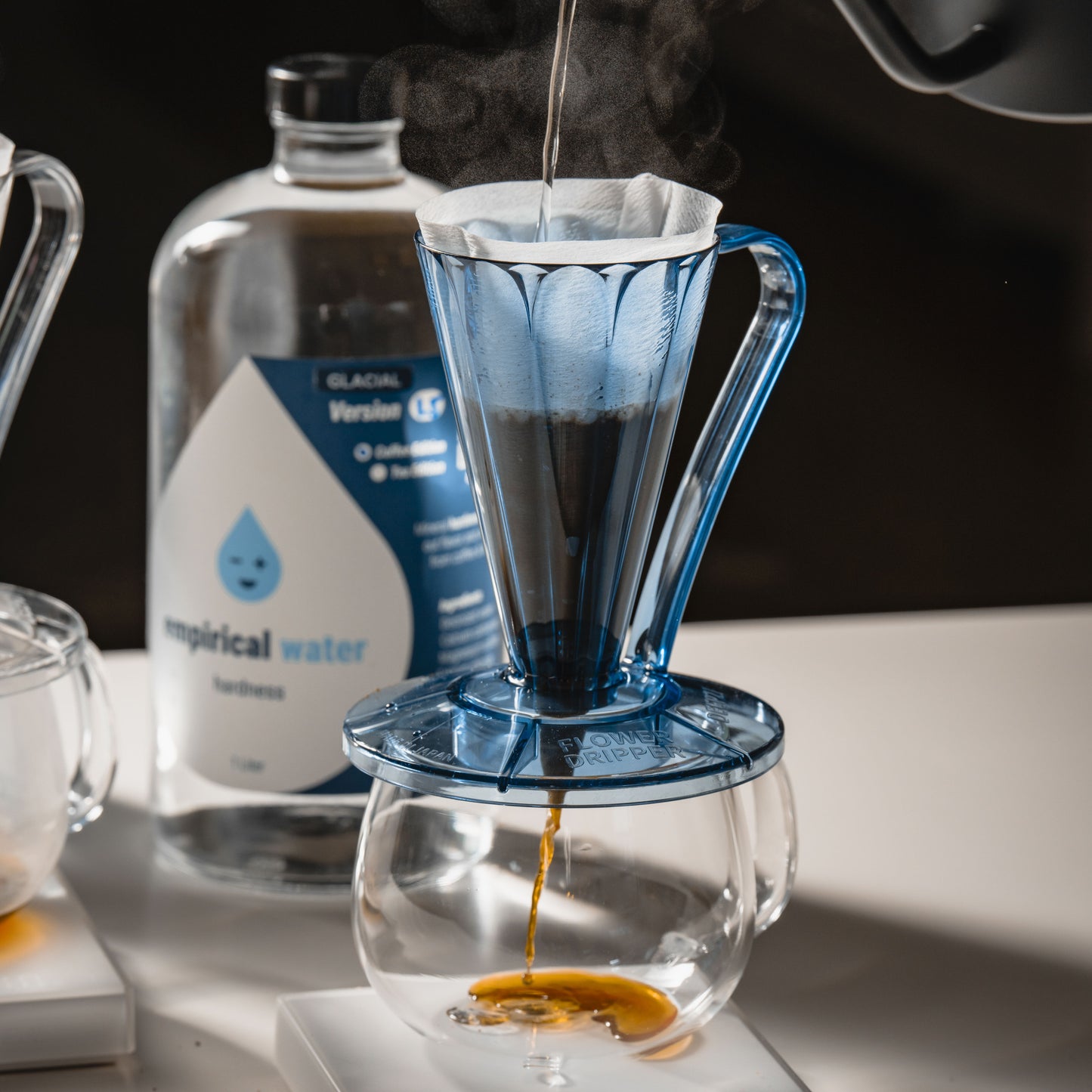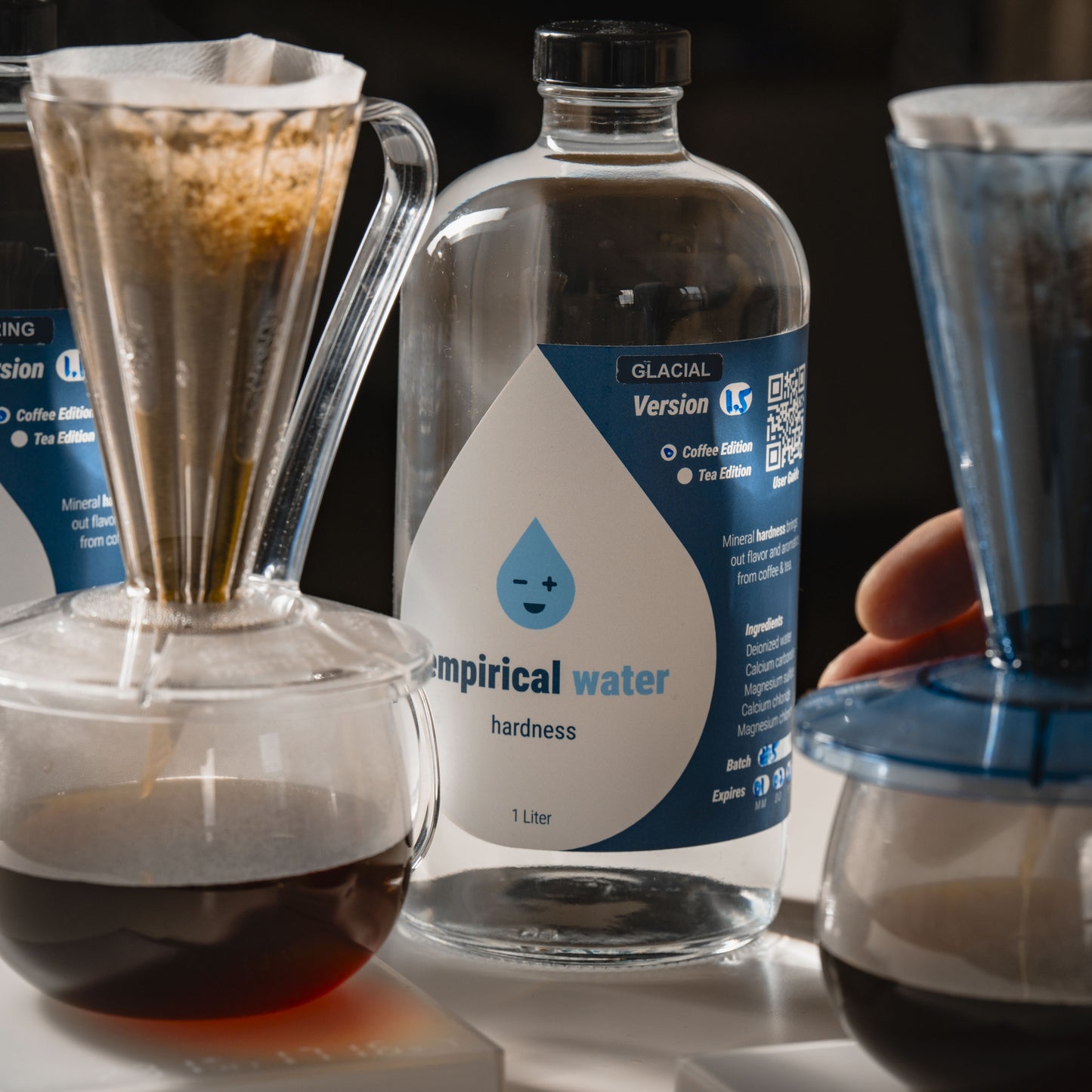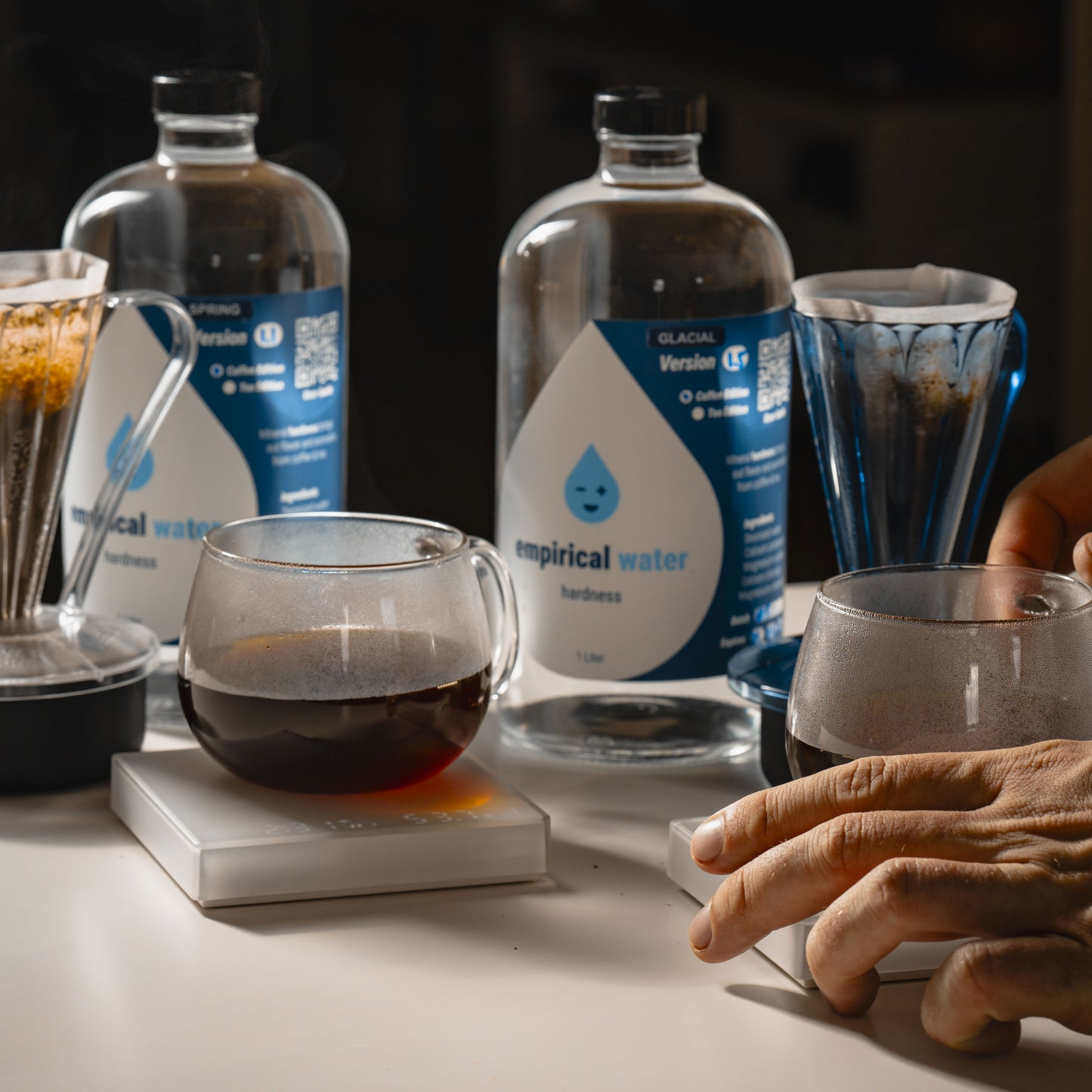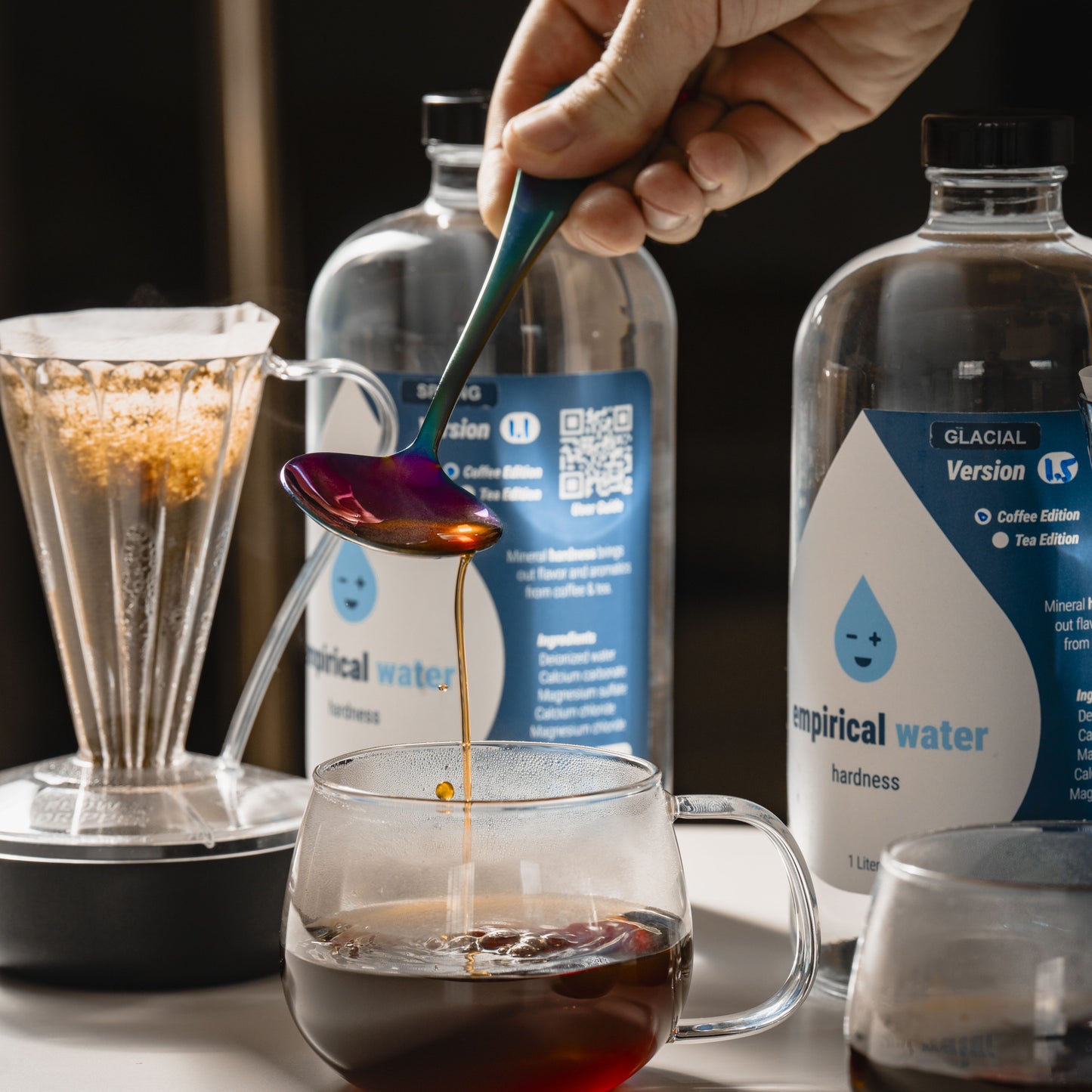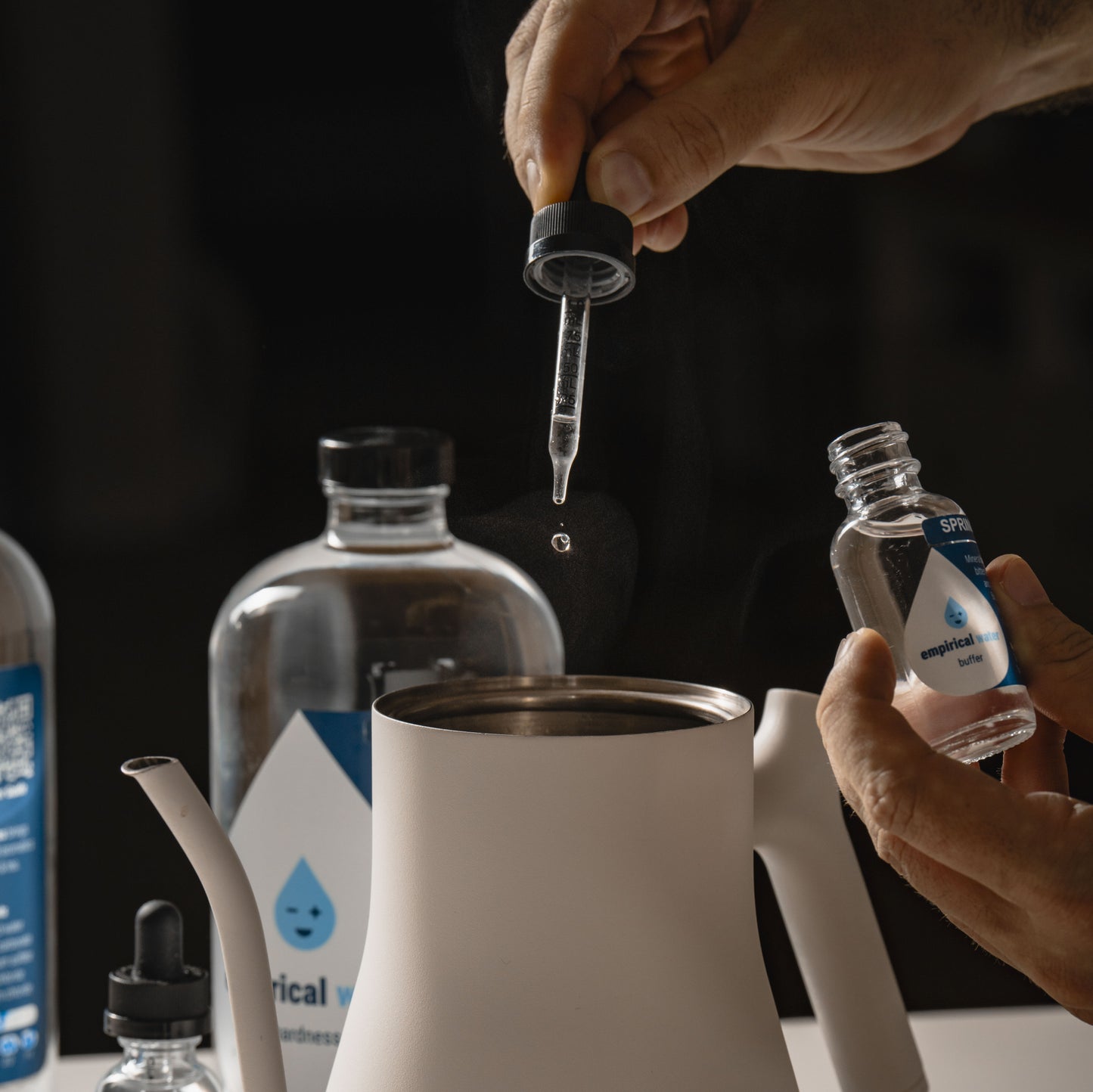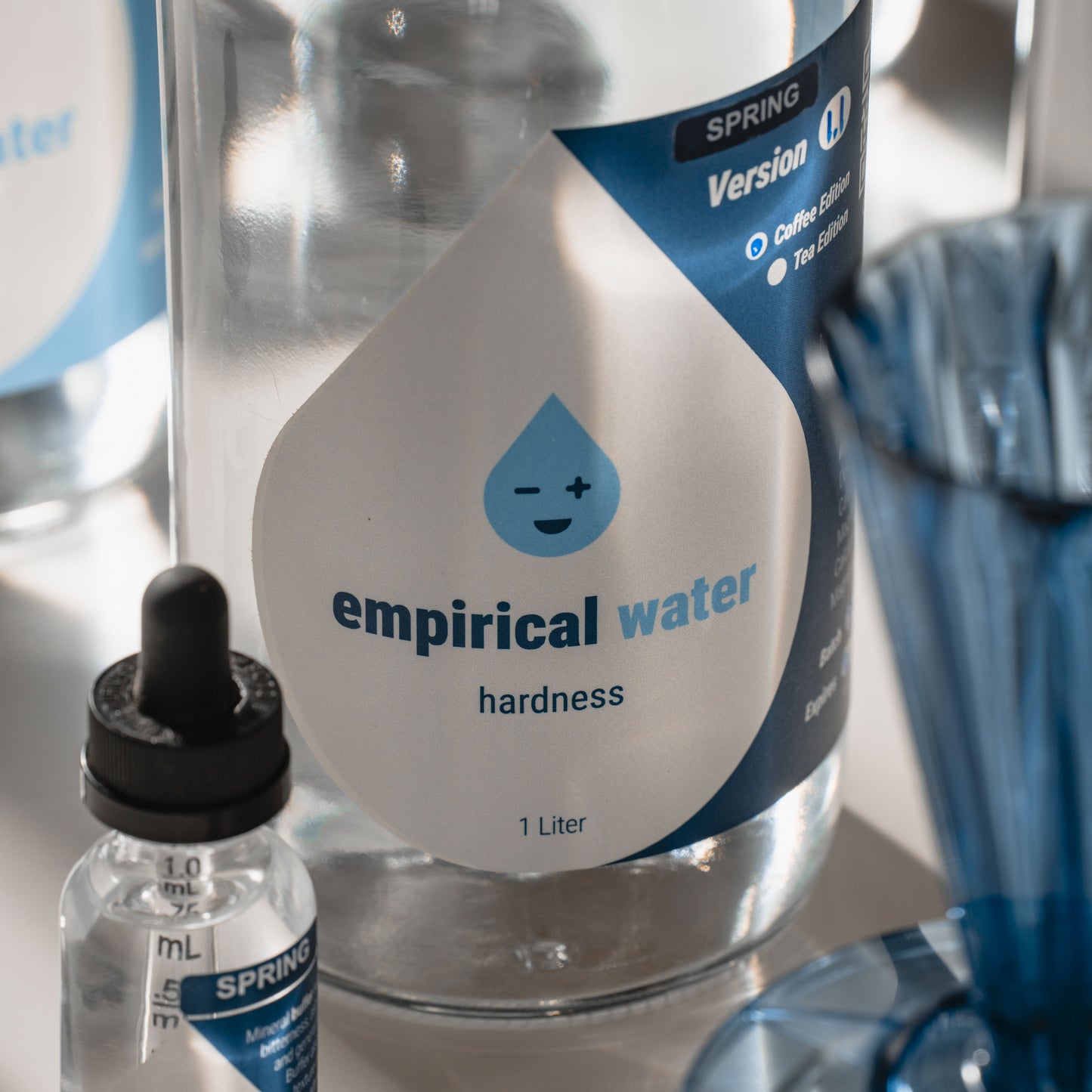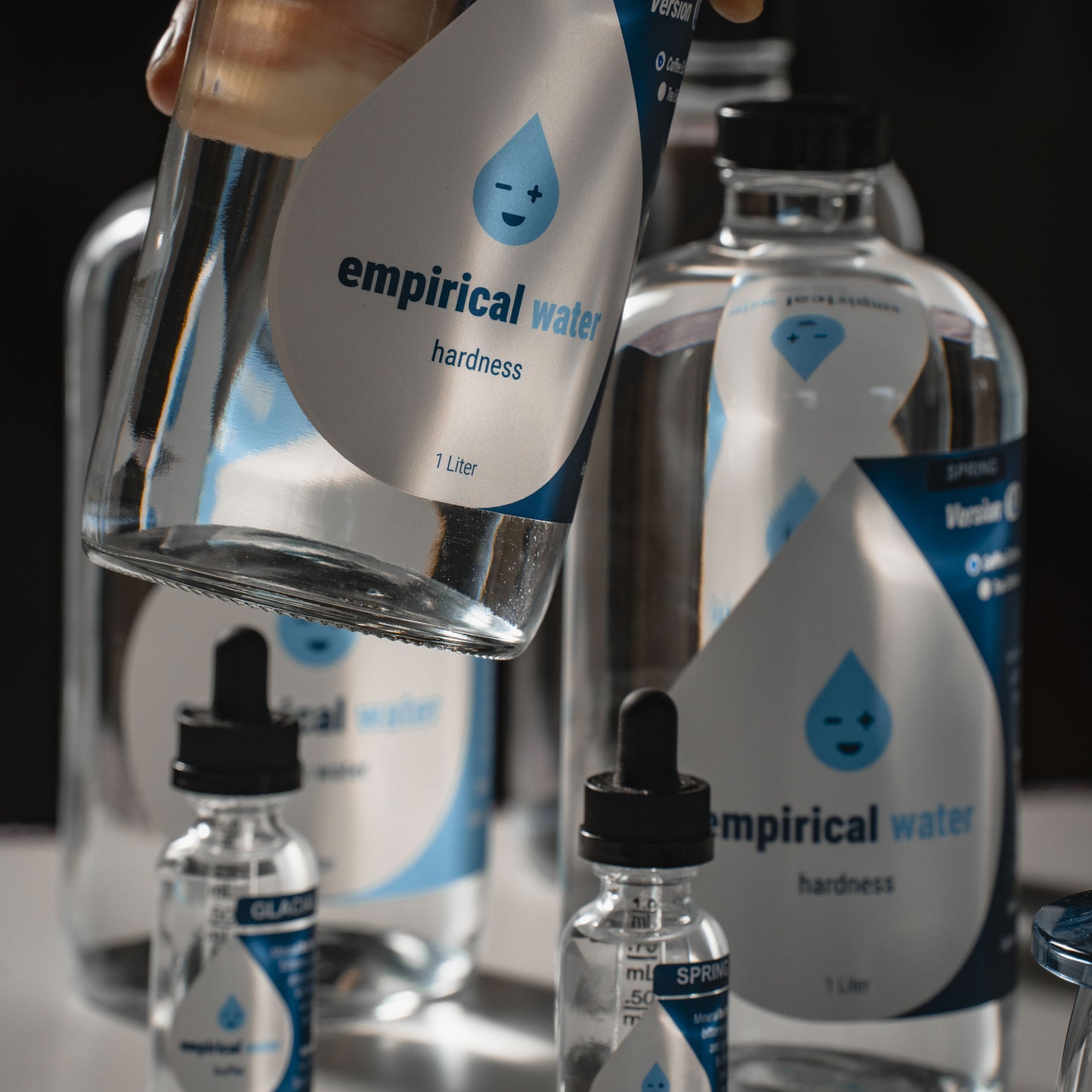5 min read
Consider the following:
Do you take the craft of brewing coffee more seriously than most people you know?
If not, this article and the product it was written to sell is probably of little use to you, and you should click out now. But if you truly value the craft of specialty coffee, it sounds like you're in the right place!
Any questions? Use the Live chat feature, bottom right.
Introduction
Greetings. My name is Arby Avanesian, and I'm the developer. I started brewing coffee seriously at 17, in 2017. All I had to work with in my quest for good coffee was an old drip machine, a bag of stale pre-ground coffee, and some filtered water.
Along the way, I spent:
-
Thousands of dollars on specialized brewing gear.
-
Thousands of hours practicing brewing technique.
-
Around $145 on minerals, a cheap scale, some distilled water, and a simple carbonation system to start making fully custom brew water in the natural style (we'll get to that).
Wondering which made the biggest difference? Hint: It makes up about 98% of the "coffee" in your cup.
It was the brew water. With my little laboratory setup, I could recreate any mineral water from around the world, as long as I knew its mineral content. So I began recreating the world's finest spring, glacial, and deep aquifer sources, and putting them to the test in a brewing context.
As I engaged in this outrageously nerdy endeavor, I noticed one thing in common between all of the highest performing waters: They all shared one agonizingly difficult-to-work-with ingredient. Imagine my reaction when I realized there wasn't a single brew water product on the market to make use of it.
(See our World Class Endorsements!)
The Key Ingredient
empirical water is not like anything else on the market.
It's not a dry mineral packet — It's a liquid mineral concentrate. But it doesn't fit in a dropper bottle, either. So what's in it?

Answer: empirical water is the first (and only) brewing water on the market to incorporate calcium carbonate — The #1 most important mineral for brewing amazing coffee.
Calcium carbonate is naturally occurring in the world's finest mineral waters, and brews better coffee because it excels in two main areas:
-
It brings out loads of desirable attributes, like flavor and sweetness.
-
It suppresses harshness, keeping bitterness and astringency to a minimum.
How is it so Effective?
Disclaimer: The following is simply my personal explanation based on 5,000+ hours of testing over a 6 year period.
Calcium is one of the basic minerals required for good brew water. To get calcium content, existing brands and recipes use calcium chloride, calcium sulfate, and calcium citrate. Citrate is not naturally occurring in water, so you won't find it in empirical water.
As for sulfate and chloride, they each have a crucial role to play in coffee extraction:
-
Sulfate — Increases flavor definition and extraction intensity. Too much means harshness and off-notes in the cup.
-
Chloride — Reduces harshness and off-notes. Too much means reduced depth in the cup.
Where current brew waters go wrong is using way too much of one or both. That gets you the worst of both worlds: Too much harshness, and not enough depth.
At empirical water, we get about half of our calcium from calcium carbonate, which means we use only half the typical amount of sulfate and chloride relative to TDS. This gets you the best of both worlds: High intensity flavor definition without the potential for harshness.
Which begs the question, why is no one else using this game-changing mineral?

Incorporation Process
Calcium carbonate has difficulties associated with it:
-
It's insoluble in water, so it can't be shipped as a powder in mineral packets.
-
It's time/labor-intensive to dissolve through carbonation, and even then, it's still not soluble enough to fit a meaningful amount in a dropper bottle. Hence, the large form factor.
Here's how we incorporate calcium carbonate.

What you're looking at here is the inside of a keg.
At empirical water, we fill up our kegs with deionized water, add in carefully measured amounts of calcium carbonate and other minerals, and carbonate using carbon dioxide to dissolve the minerals.
Once the minerals are dissolved, we remove the carbonation through a process called decarbonation. That yields us a flat (rather than fizzy) concentrate, and involves physically agitating the concentrate with an electric mixer.

What our Customers Say
All verified reviews are viewable on the product page.
Completely changes the experience - Absolutely night and day difference.
- Tom Zheng, verified reviewer
Calcium carbonate gets you right to the elements you're looking for: sweetness, clarity, aromatics, texture and aftertaste, without any harshness or off-notes.
Empirical Water by far outperforms any of the other popular brands on the market. So much greater complexity and intensity, with bag notes clearly presented to the forefront.
- Istvan Erdelyi, verified reviewer
Forget about searching for those bag notes — you'll taste them immediately. It makes your brew parameters more forgiving, so you're not constantly chasing that dialed-in brew. Stuff just comes out tasting good without thinking too much about it.
I was skeptical that calcium carbonate in an aqueous solution would be so beneficial to the enhanced coffee richness and sweetness, but it really is the key to the best coffee I am brewing.
- Bosanke, verified reviewer
It's the key to the best coffee we've brewed, too!
